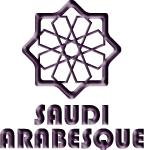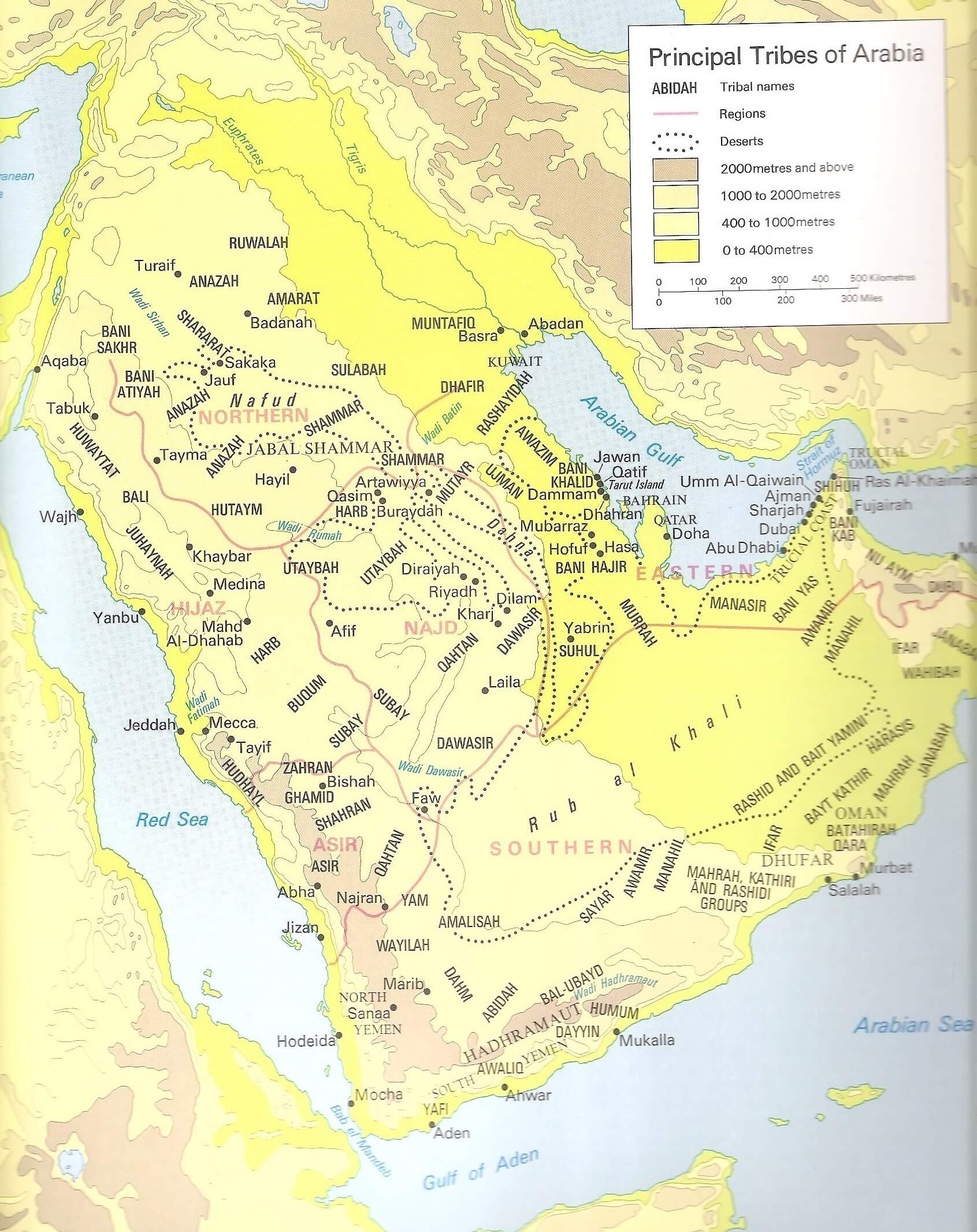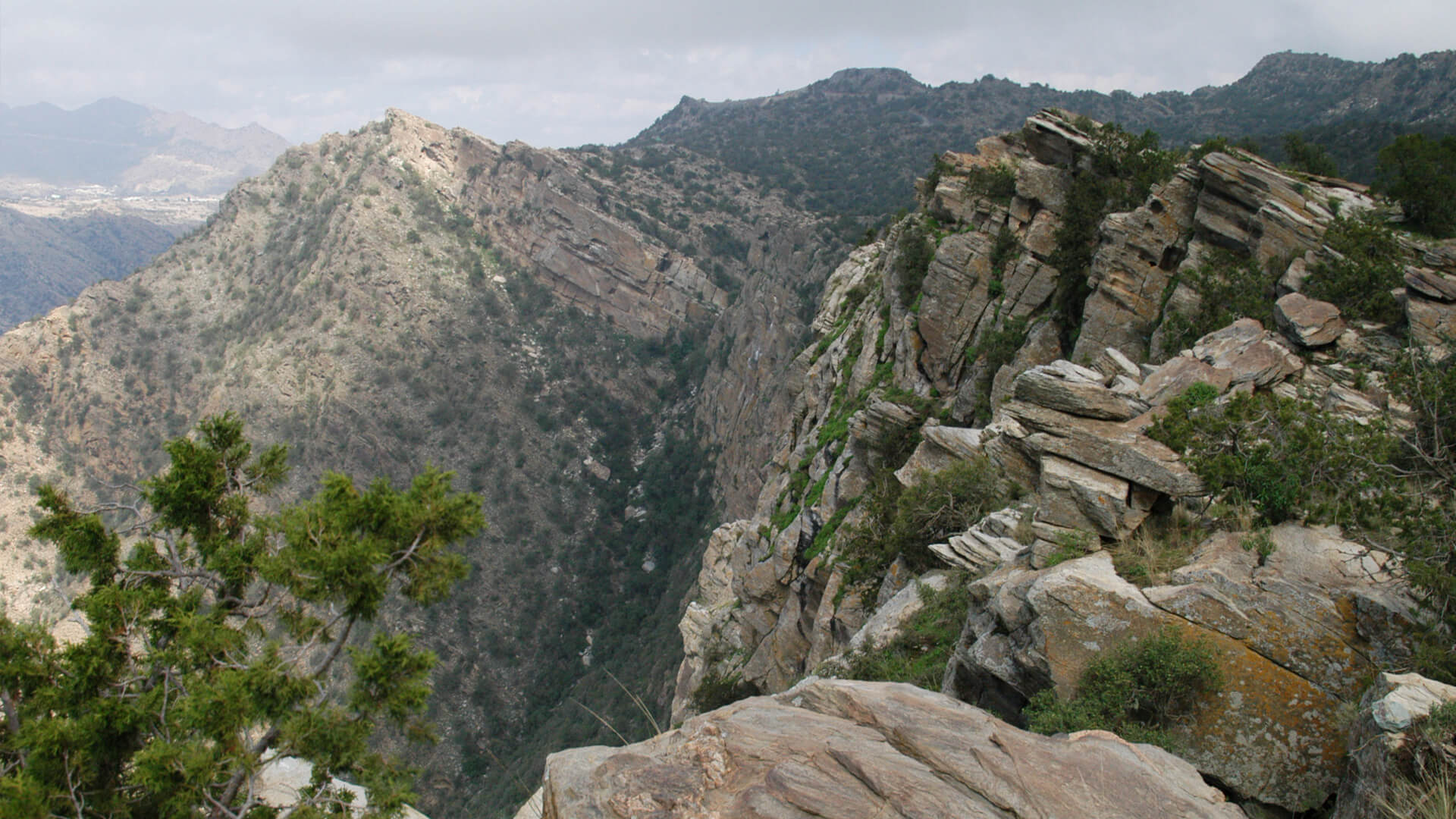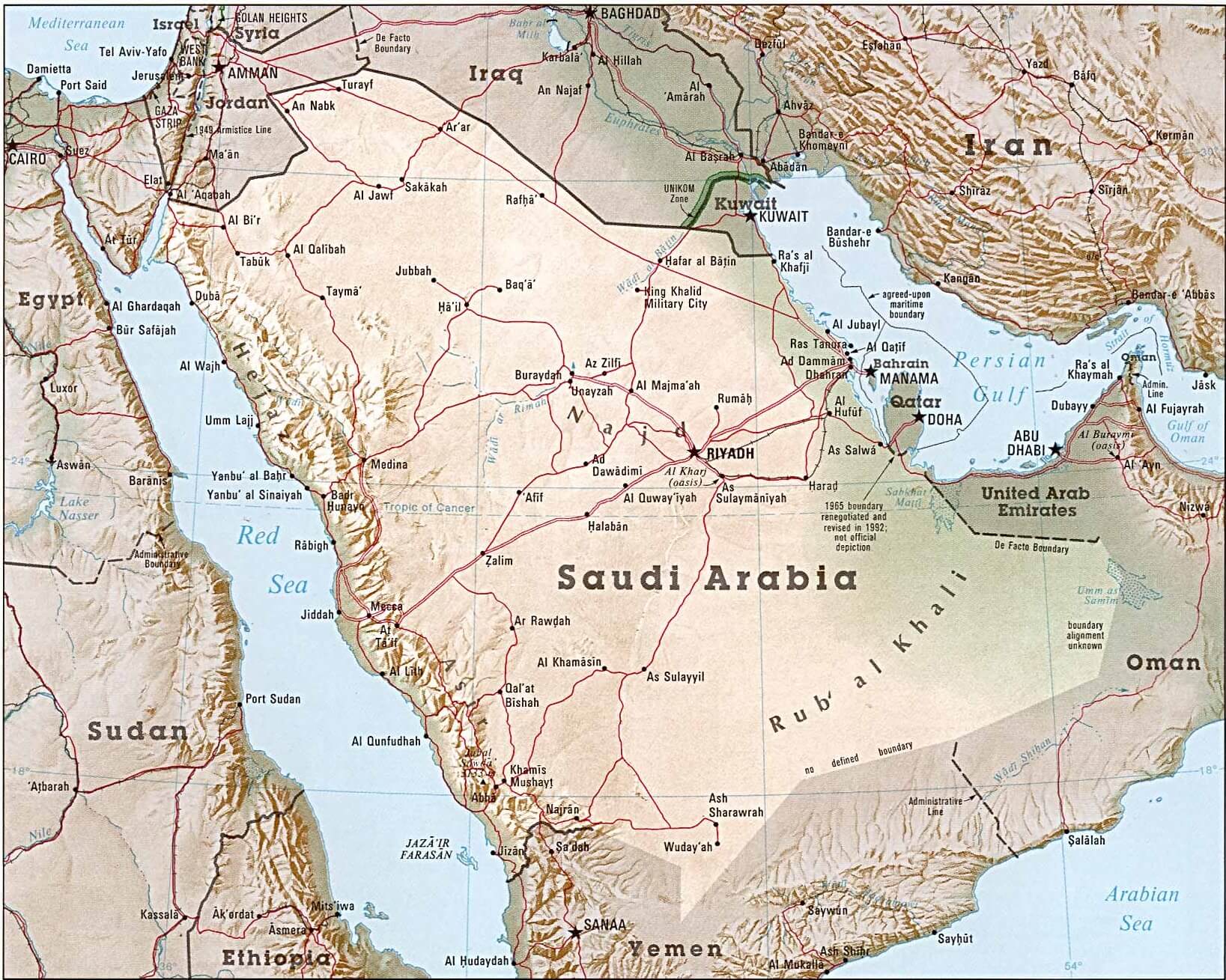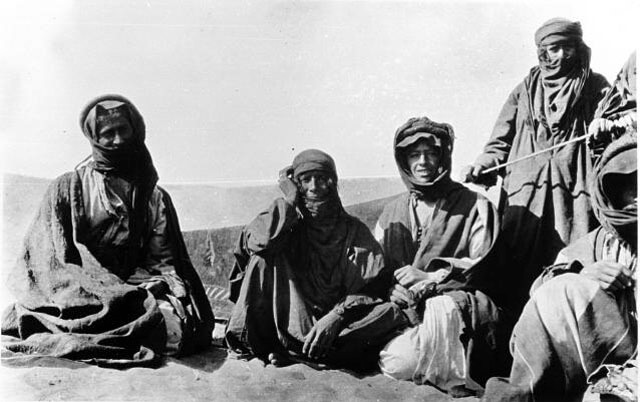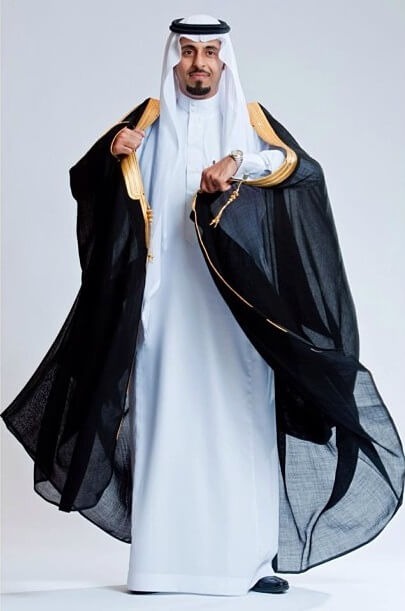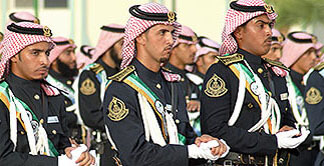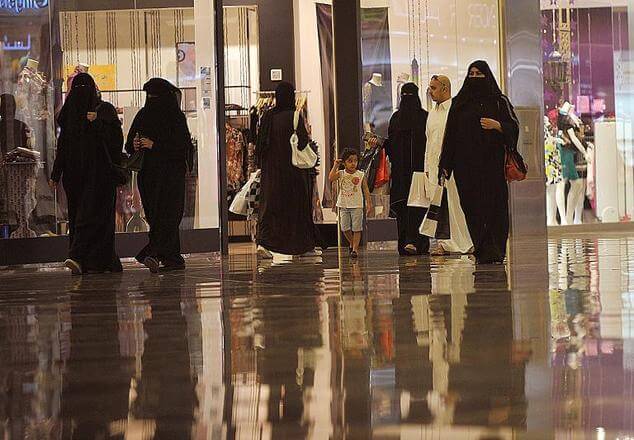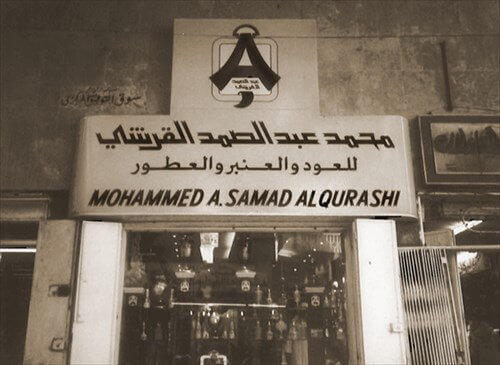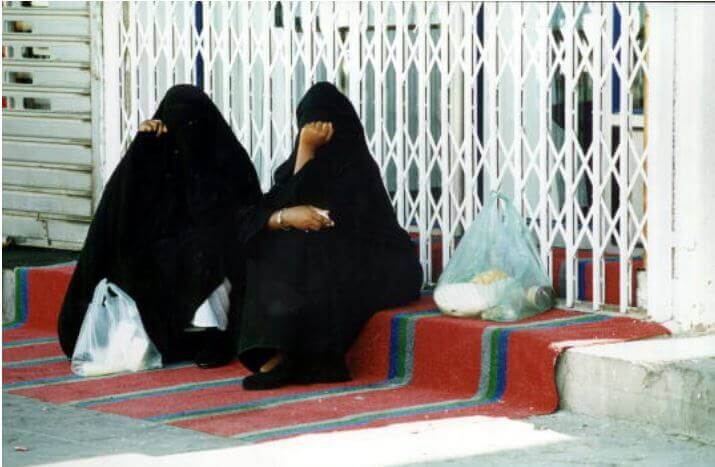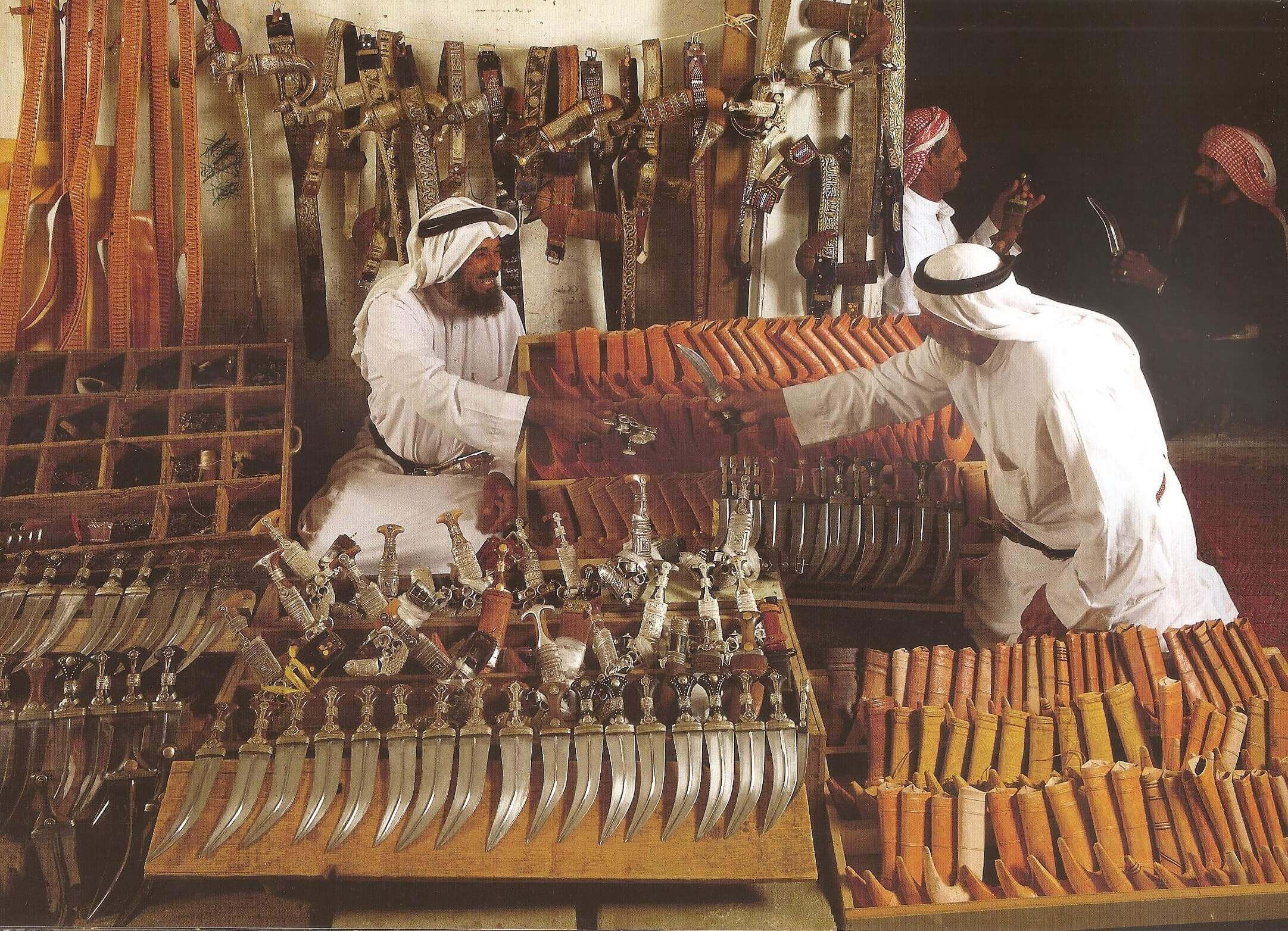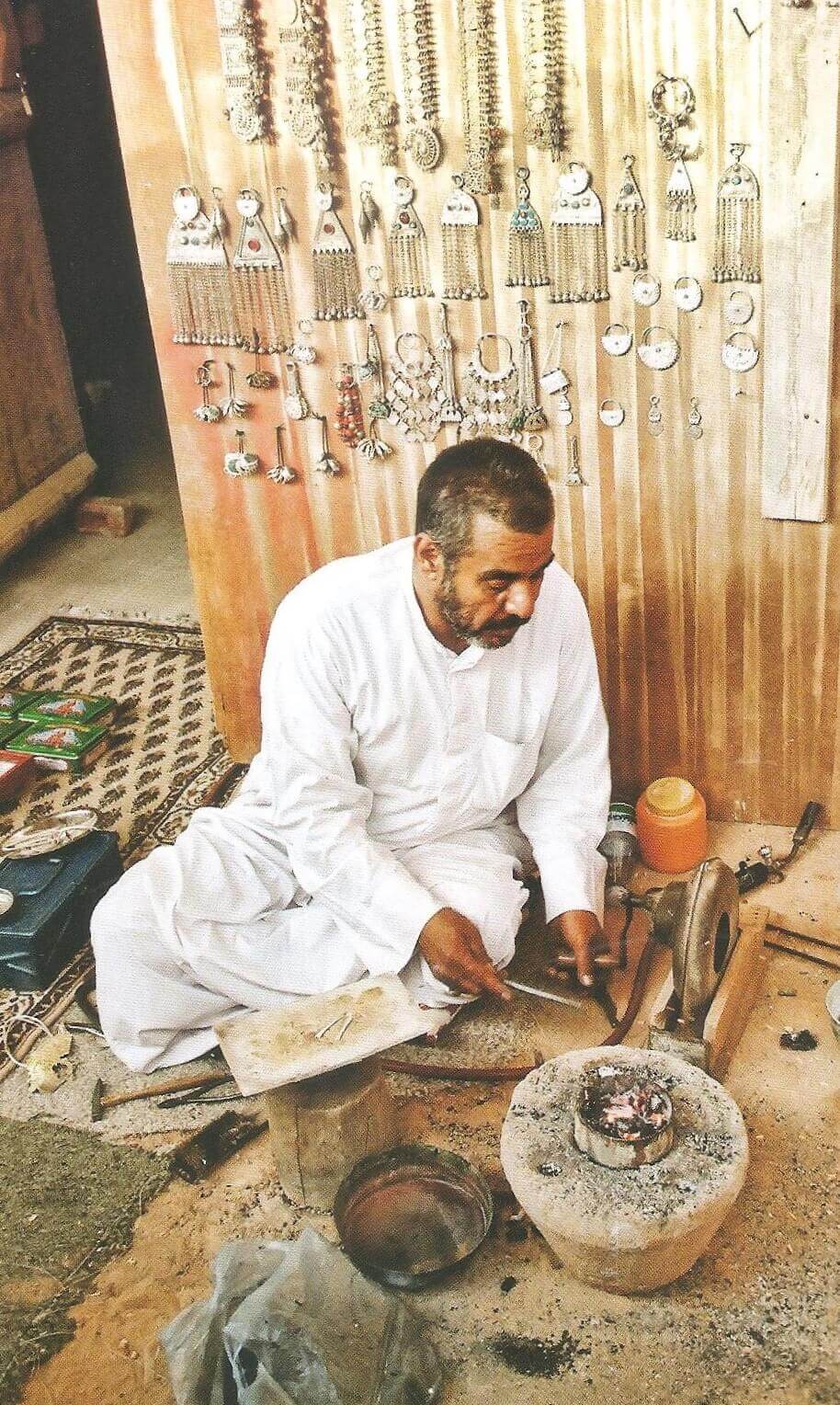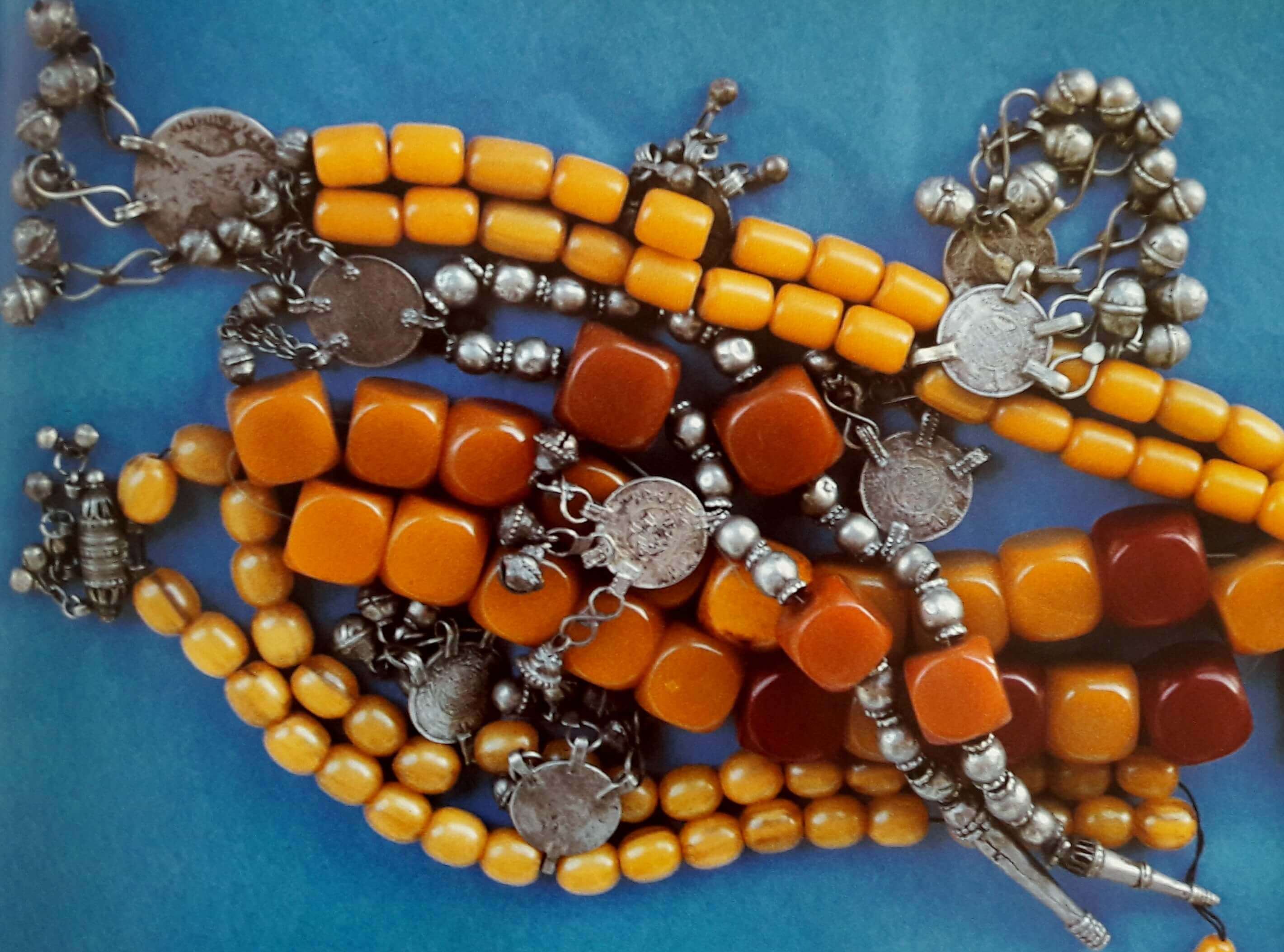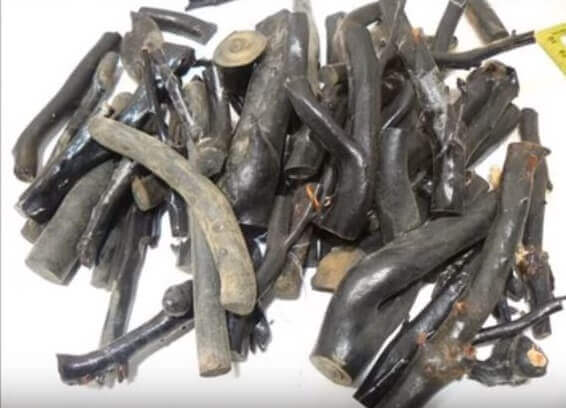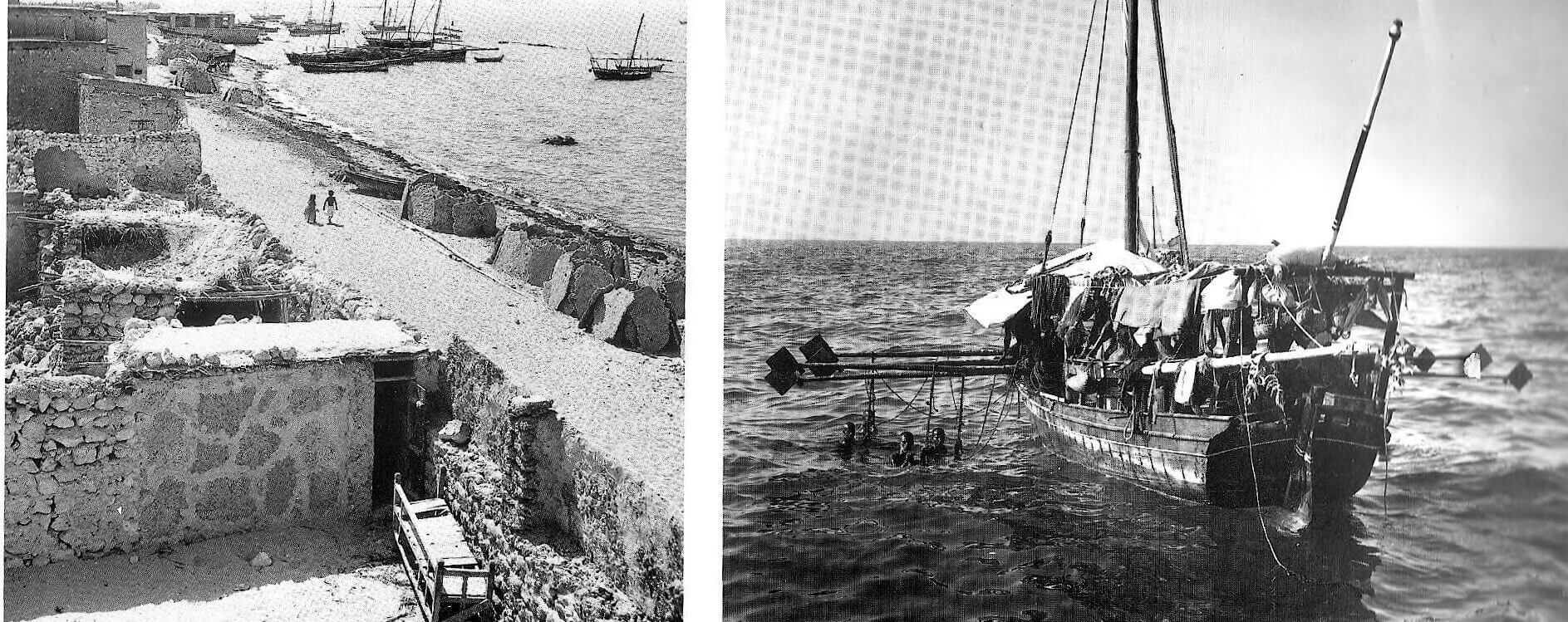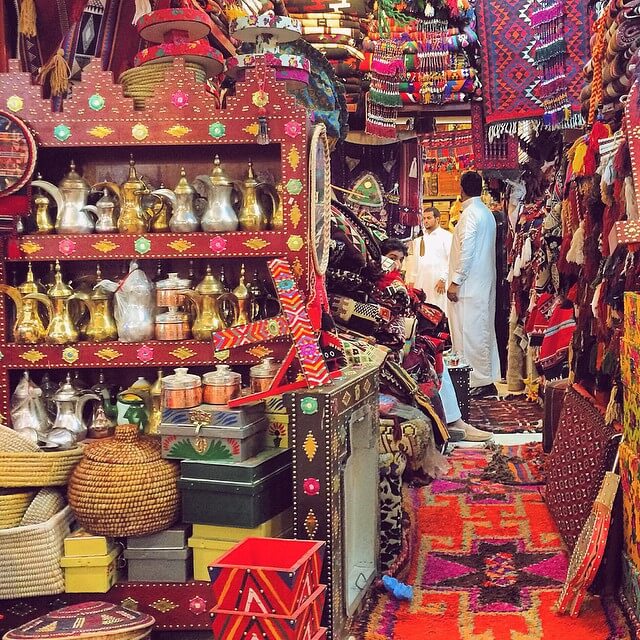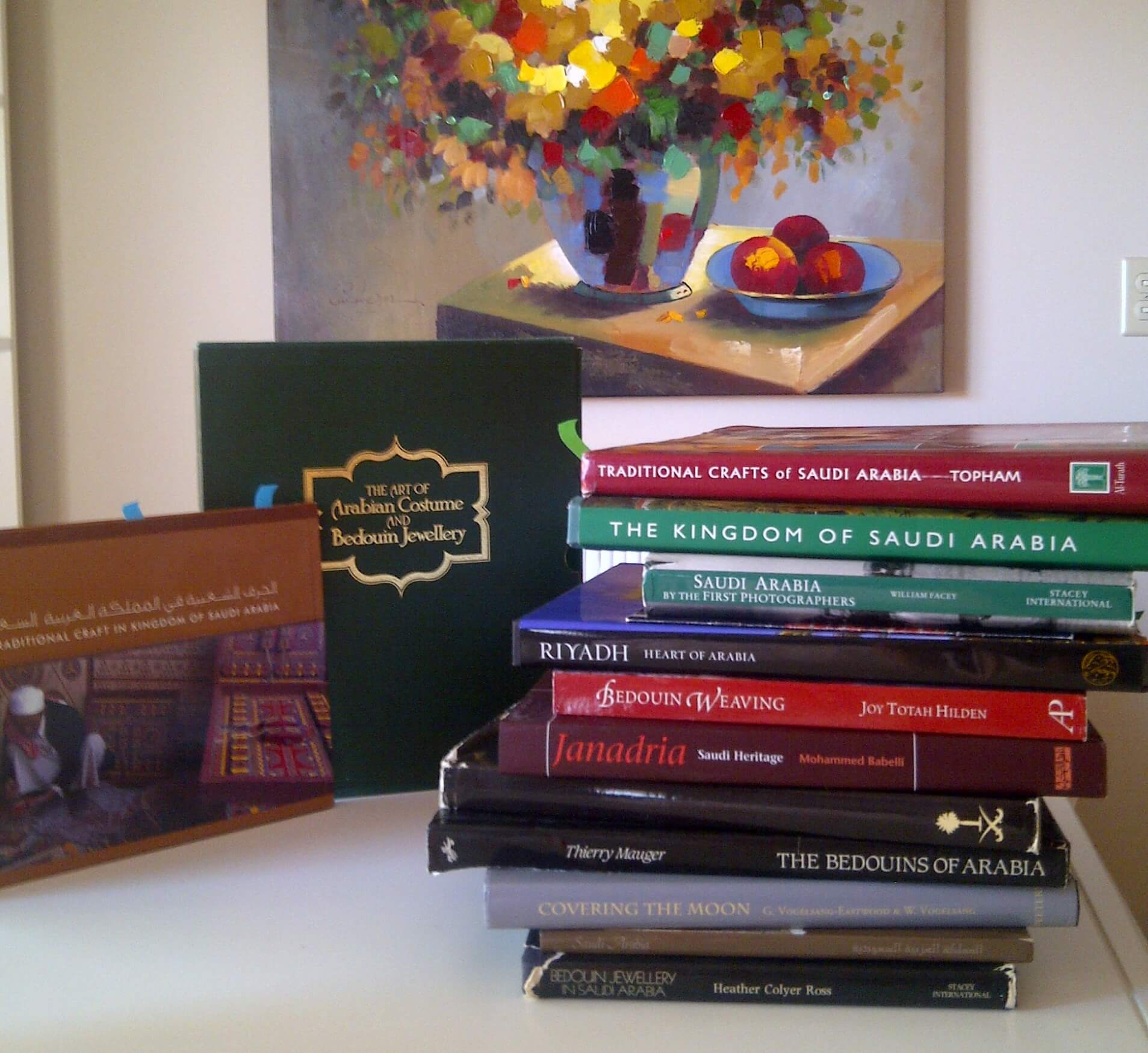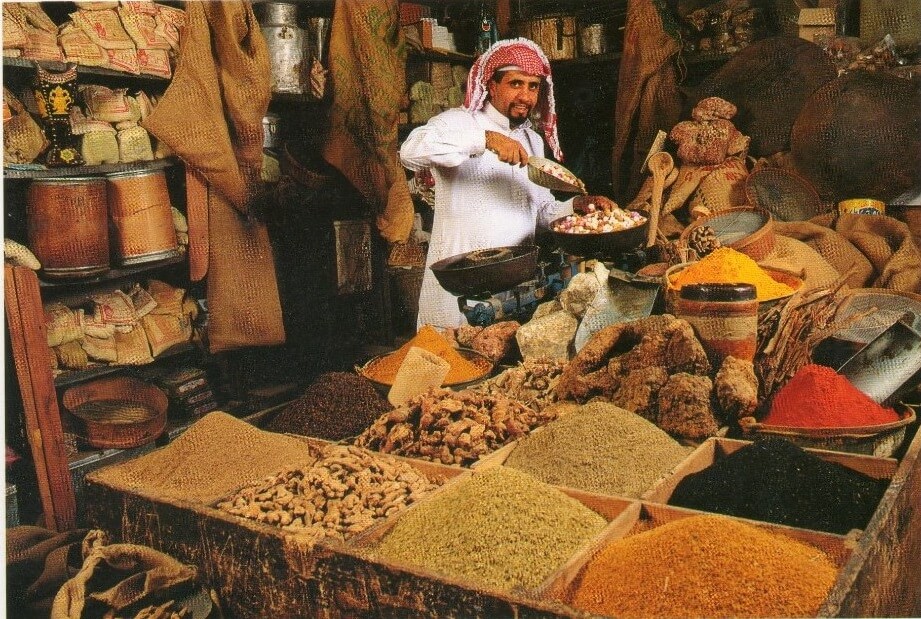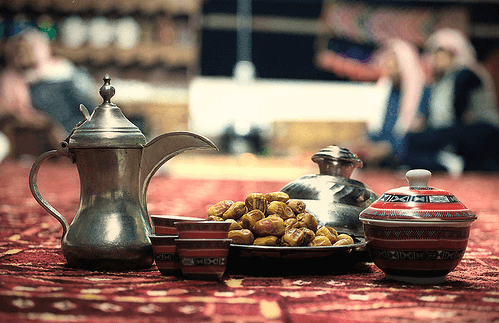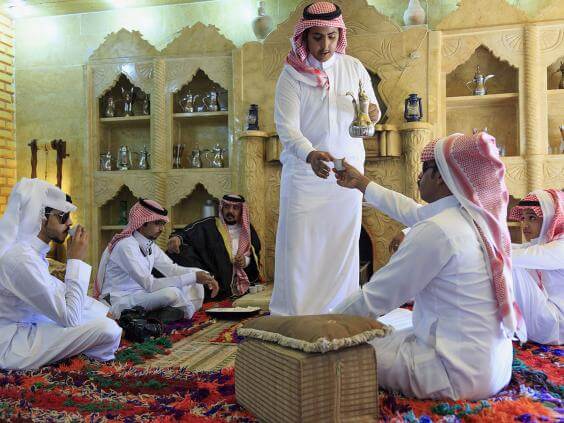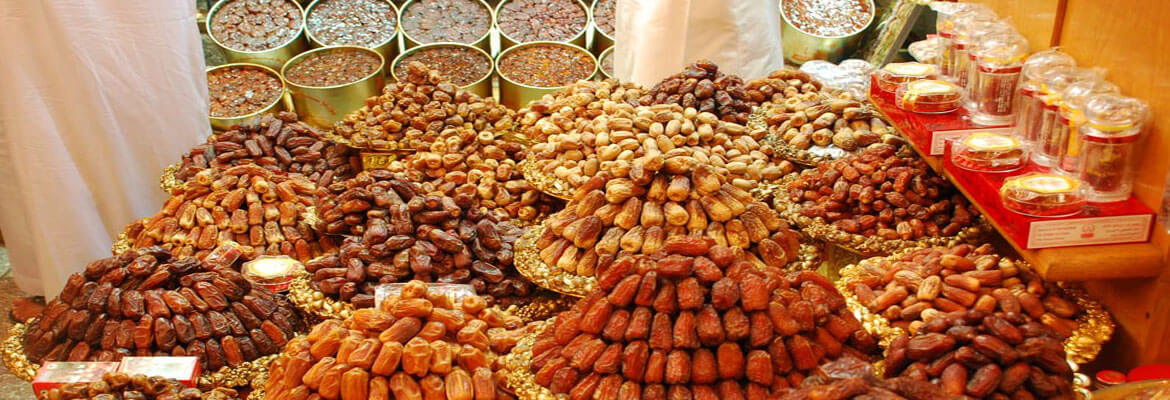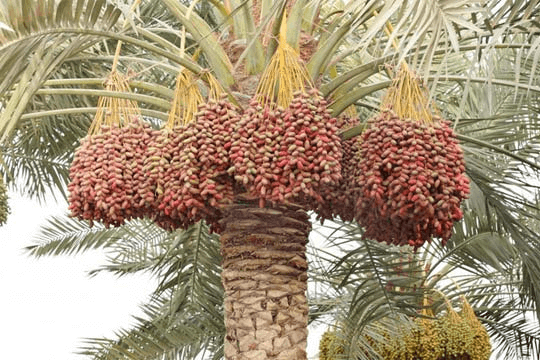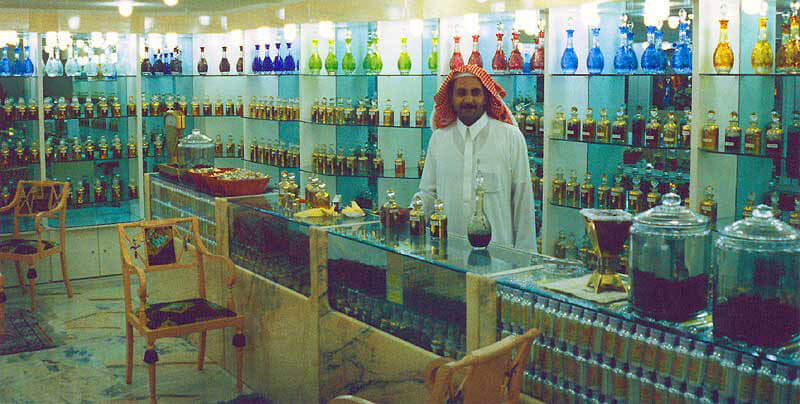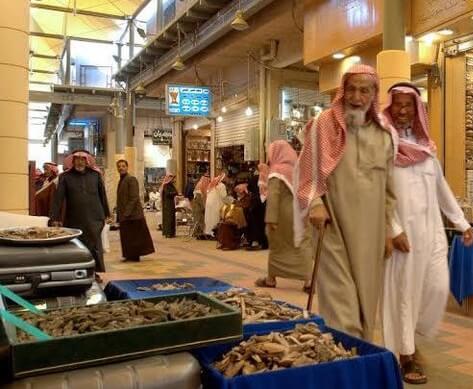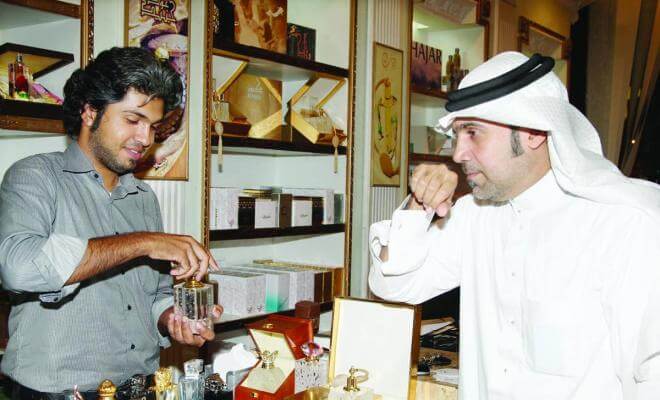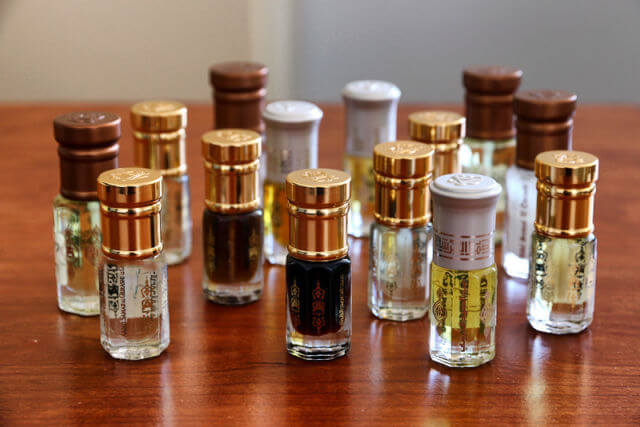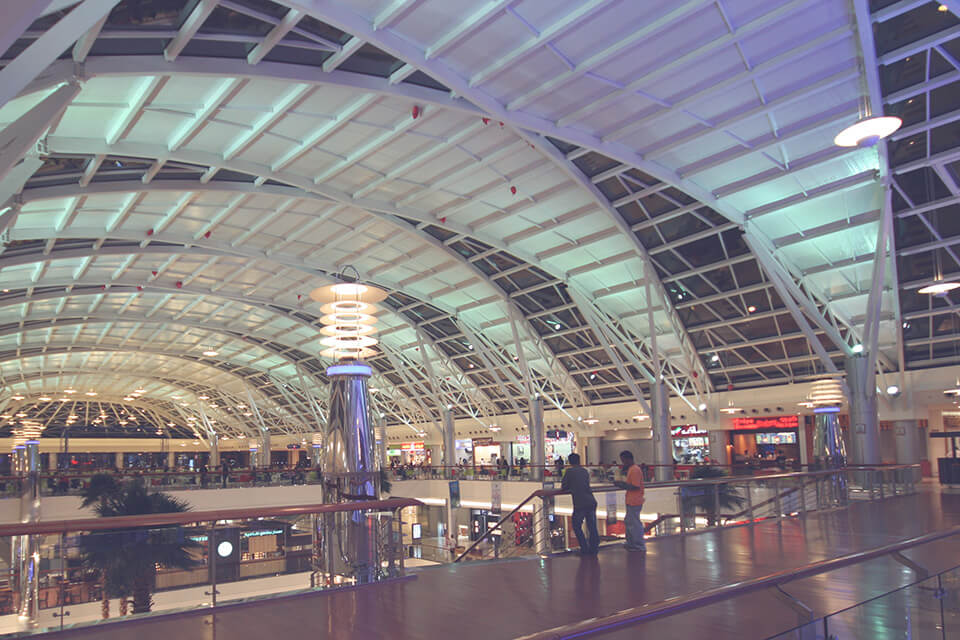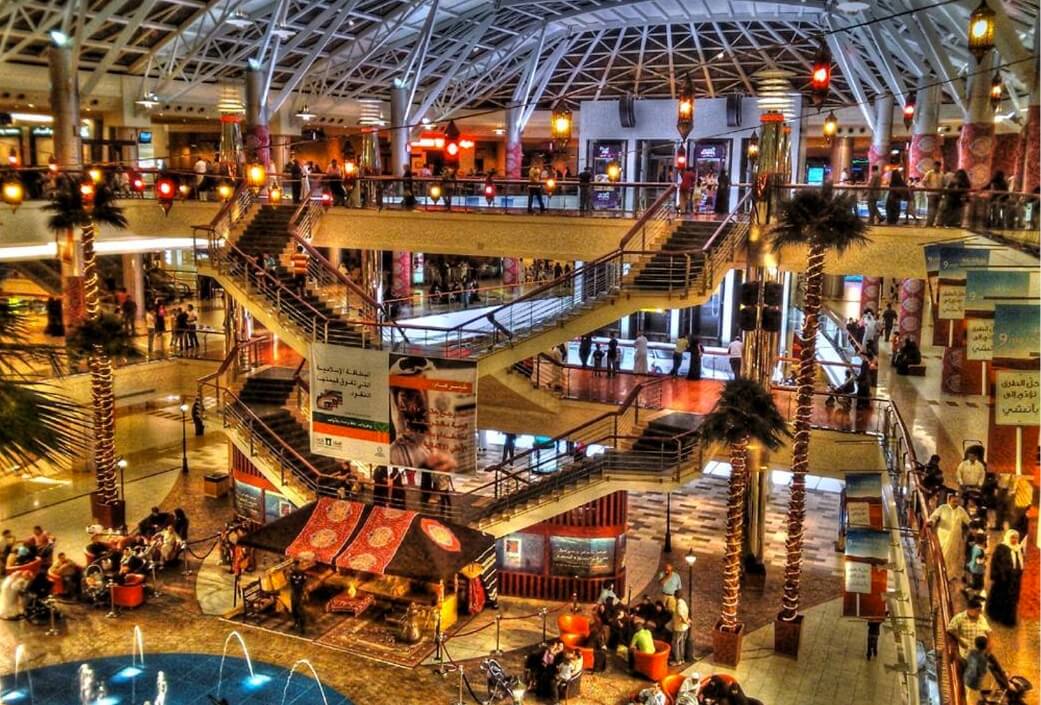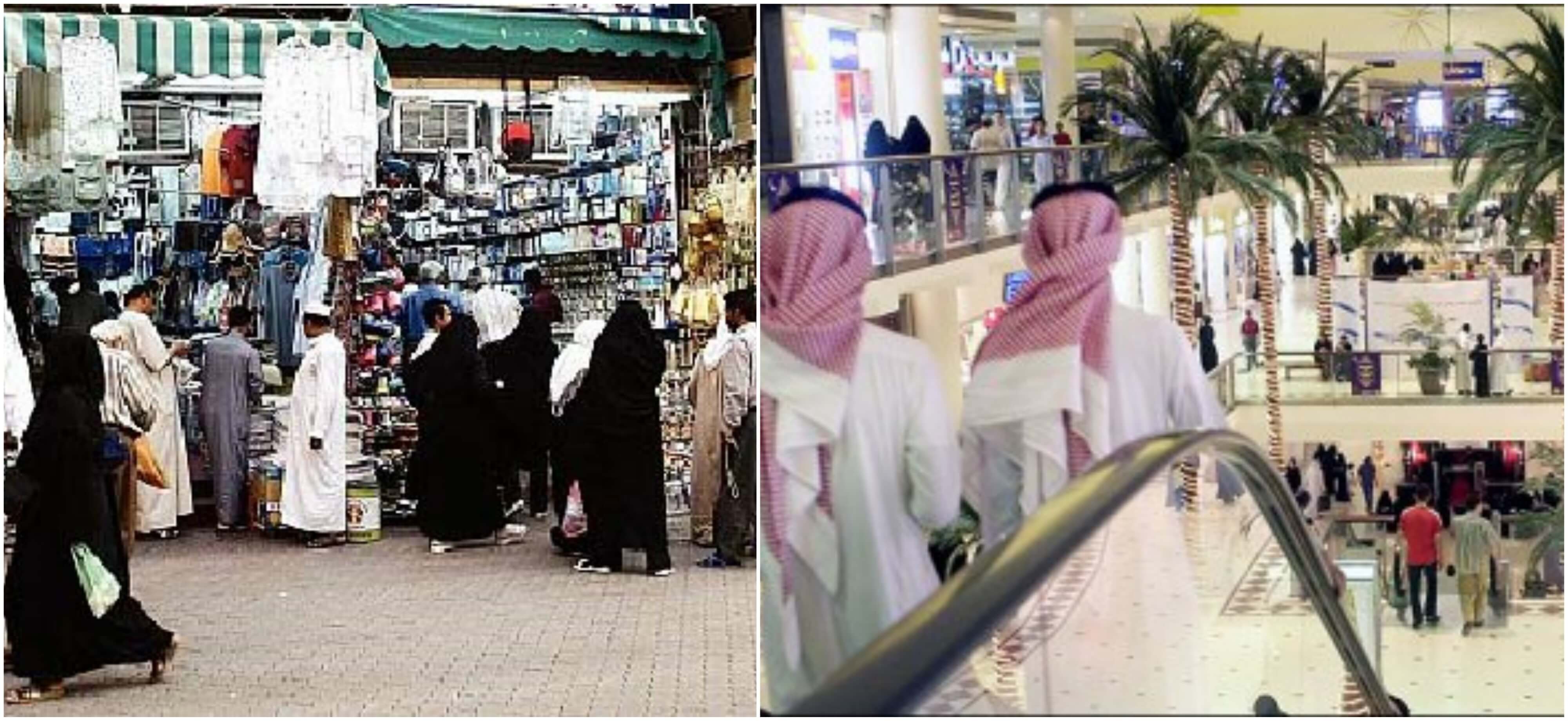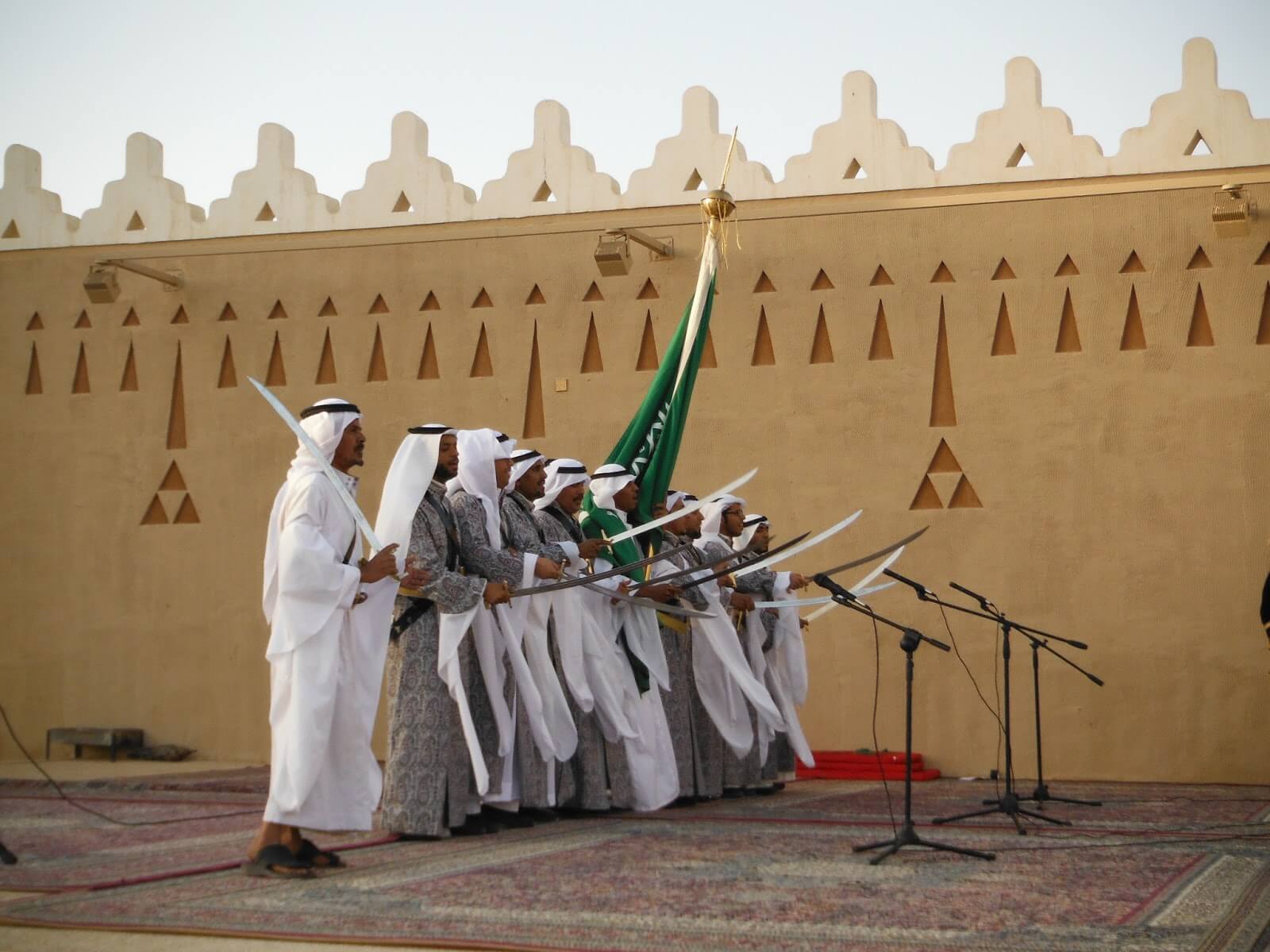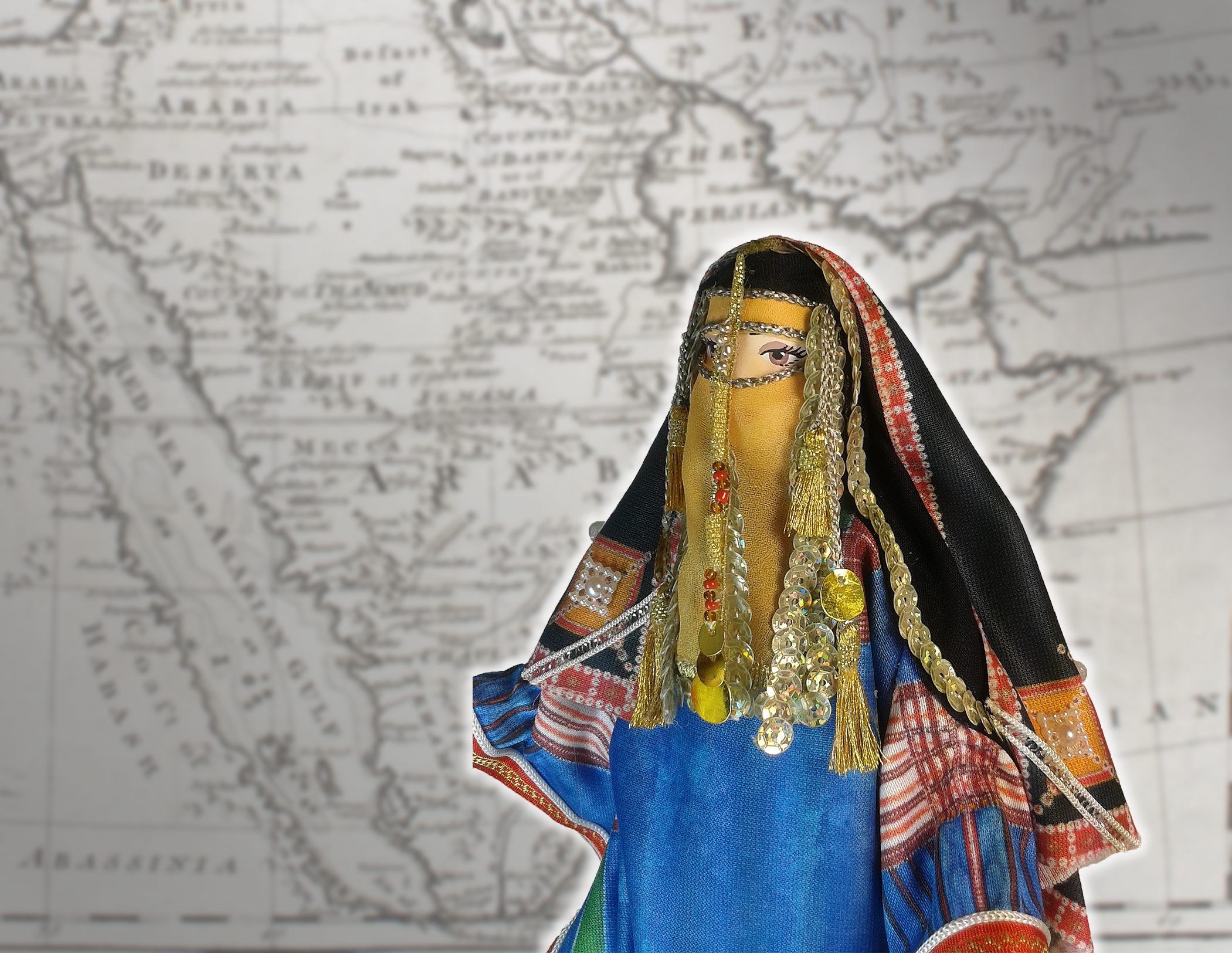Traditional woman dress of Harb tribe, Saudi Arabia, continued
Elements of the tribeswomen attire
The traditional dress and accessories of a Harb’s tribeswoman has so many intricate features that each time I look at the photos I find new details. There is a rich variety of stitches in the embroidery, lots of contrasting applique patches in vibrant colors, and the dress cut is quite peculiar with its long sleeves and plant-dyed gussets.

A woman dressed in the traditional attire of the Harb tribe of Saudi Arabia
Image source Traditional Crafts of Saudi Arabia book by John Topham
Charles Doughty in his Travels in Arabia Deserta, 1921, wrote “In the Nejd Harb I have found the ancient Arabian mind”. He was invited to a tribesman’s tent where he met the tribesman’s wife:
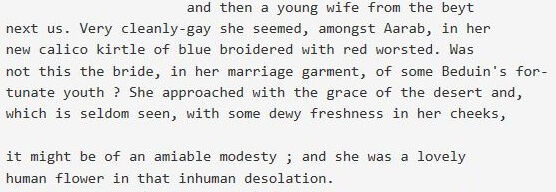
Quote from Travels in Arabia Deserta book by Charles Doughty, 1921
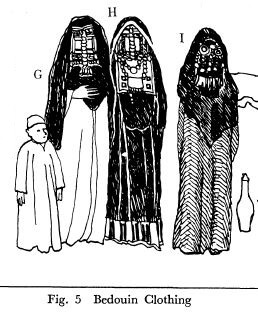
Harb tribe of Saudi Arabia traditional woman dress
Image source: Magazine Nomadic Peoples 18, No.2, 2014
Generally the older available sources describe members of the Harb tribe as rather short, slender and with dark-toned skin, and emphasize their warlike courage.
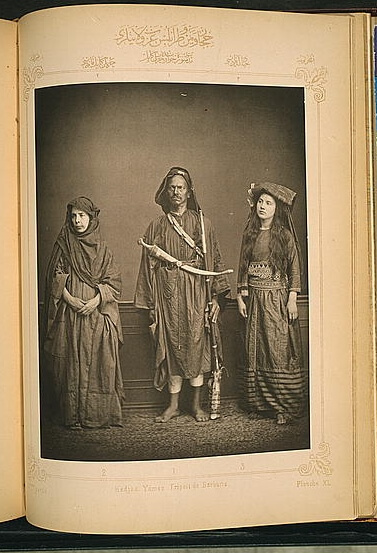
“Studio portrait of models wearing clothing from the province of Hedjaz” photo by Pascal Sebah, 1873
The caption says “Man of the Harb tribe, environs of Medina” and “Woman of the Harb tribe, environs of Medina” (from the right).
The basic part of a Harb tribal woman’s attire was a thobe – a loose floor-length dress appliqued with multicolored strips, rich patchwork, embroidered with colored glass and metal beads, with mother-of-pearl buttons. Long sleeves (length generally varies from 35 to 55cm) hang to the ground.
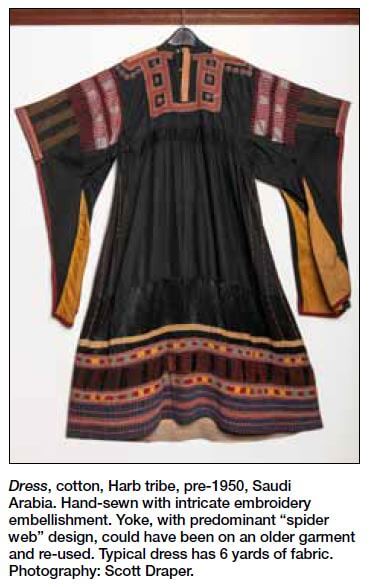
Image source Textile Arts Council Magazine, January 2014, Volume XXIX, Number 1, Article Textiles and Costumes of the Arabian Peninsula
I have found a few more designs of this dress in Traditional Crafts of Saudi Arabia book by John Topham:
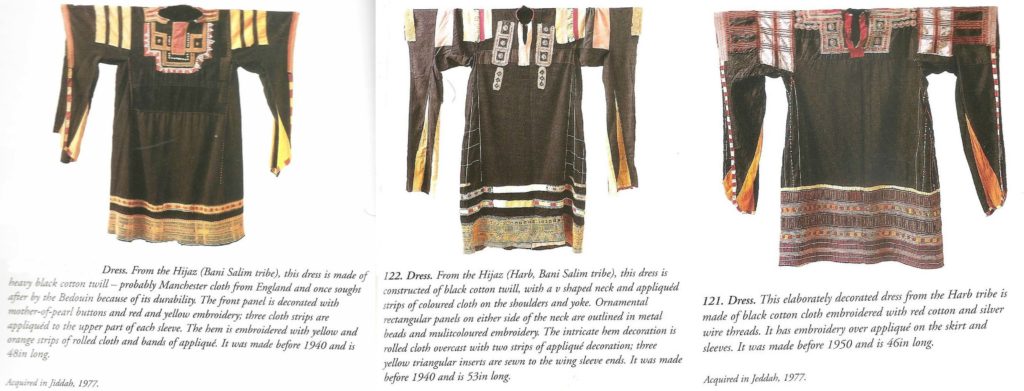
Harb dress designs and variations
Image source Traditional Crafts of Saudi Arabia book by John Topham
There is a beautiful website dedicated to the traditional clothing of Saudi Arabia, which was a go-to source for me. They have a large collection of the Harb tribe dress photos. I love the blue colored ones!
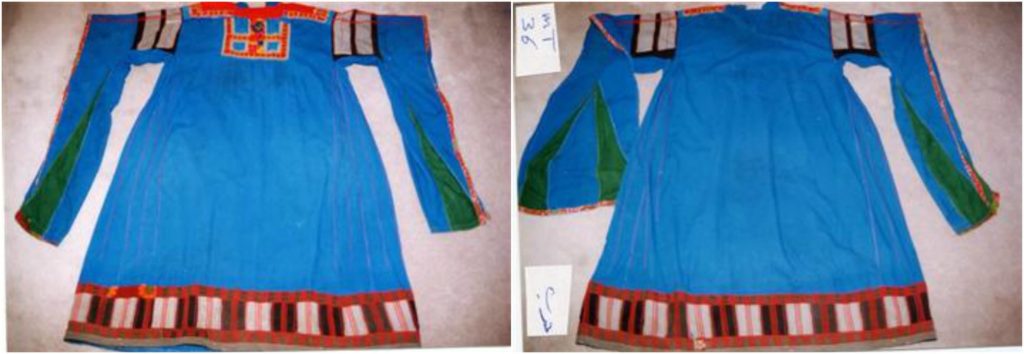
Blue woman dress of the Harb tribe
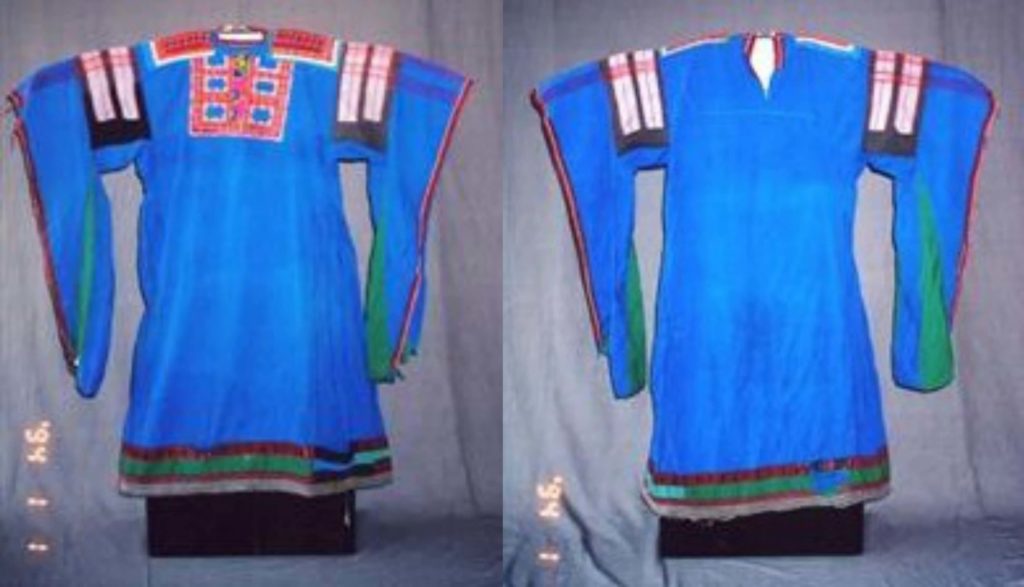
Blue cotton fabric was a distinguishing feature of the traditional Harb attire.
Many subtle and obvious variations in the styles of the tribal dresses of Harb tribes may have once served to differentiate branches of this large tribe.
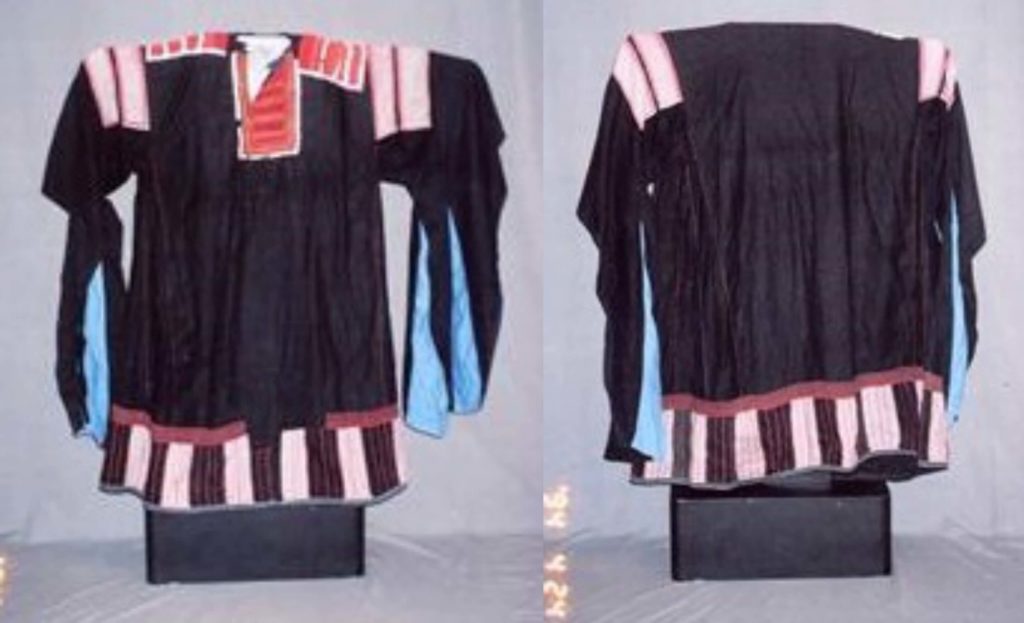
Harb tribe dress with a mandarin style closure at the neck
Although the colors and pattern of embroidery and patches may vary, the basic shape of a Harb dress has an unchanging concept with drop shoulder design and under-arm gusset:
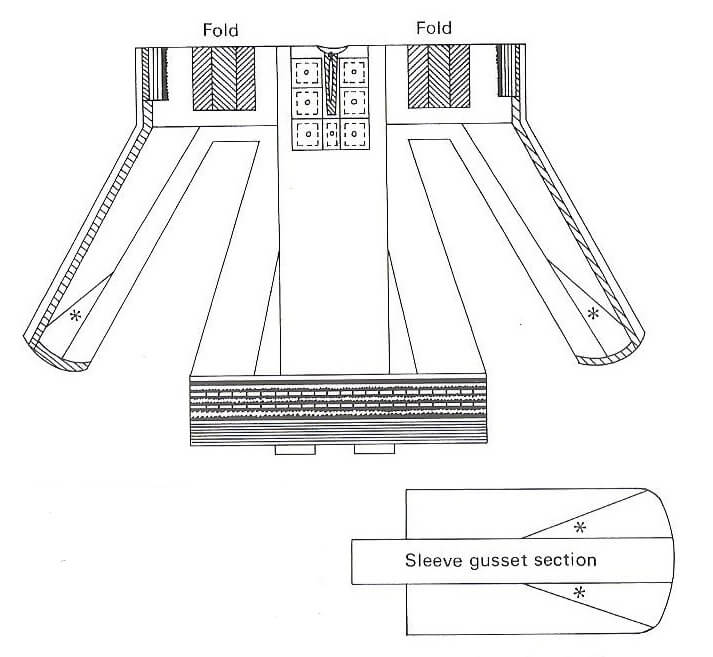
A basic cut of Harb tribe dress.
Image source The Art of the Arabian Costume, a Saudi Arabian Profile book by Heather Colyer Ross.
This dress has white color patches:
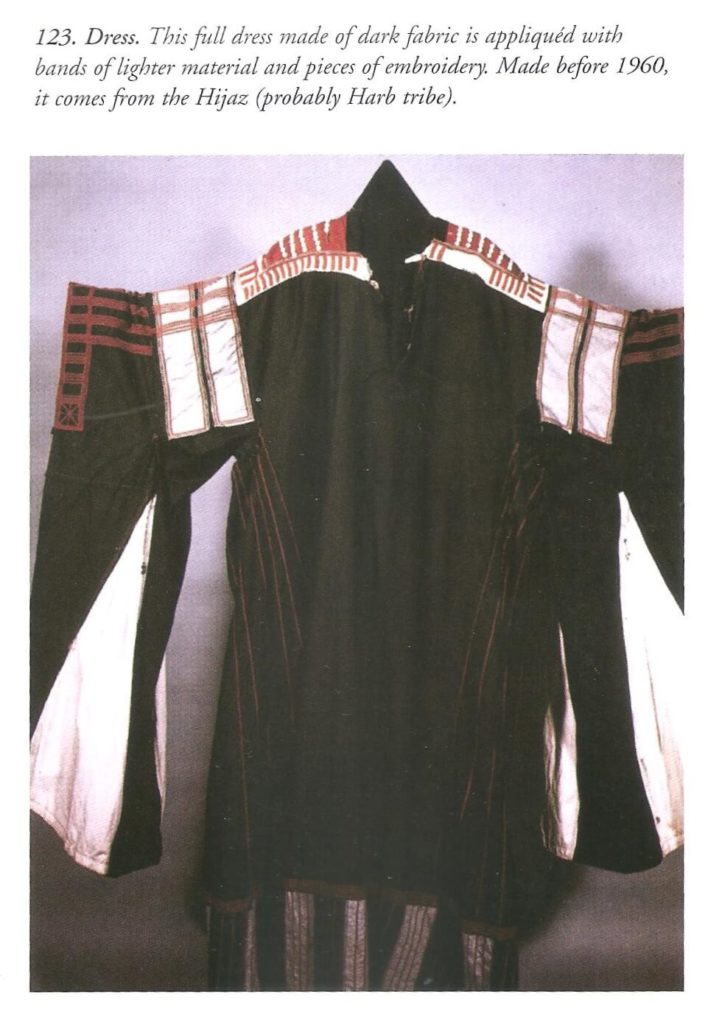
Combination of dark and white fabric in the Harb tribe dress
Image source Traditional Crafts of Saudi Arabia book by John Topham
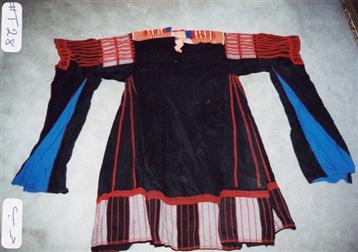
More variations of rich embroidery and multicolor patches of the Harb dress
As you can tell I quite admire the long sleeve style and variations of patches arrangement in these tribal dresses.
Women would wear underwear garments beneath the thobe: a bralette (sidaireeya) was made of fine thin cotton or muslin, and roomy long pants (sirwaal) that are narrow from calf to ankle, made of satin, silk or cotton. The narrow part of pants would be heavily embroidered.
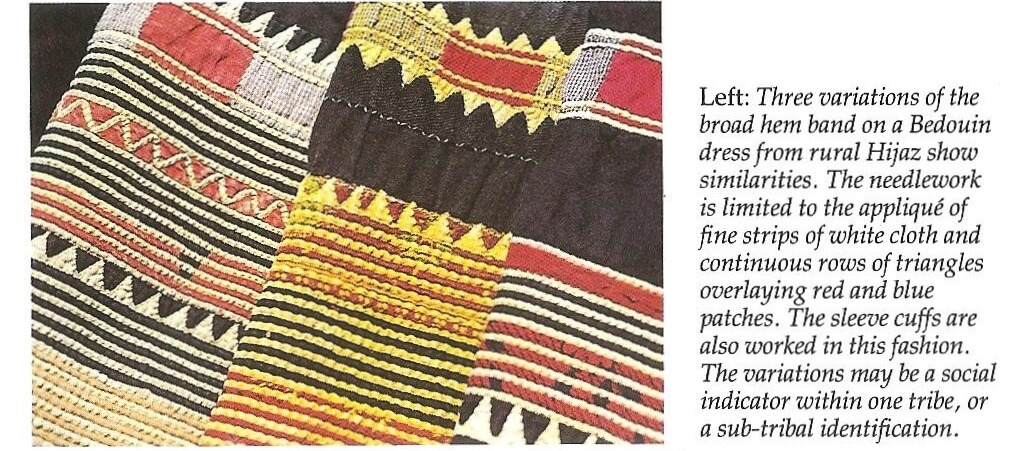
Variations of the embroidered and appliqued pieces of the pants.
Image source The Art of the Arabian Costume, a Saudi Arabian Profile book by Heather Colyer Ross.
The next important component of the attire is a headdress. I only saw head shawls in black color, however they are always decorated with patches of bright color, tassels, mother-of-pearl buttons, metal and glass beads, or embroidered.
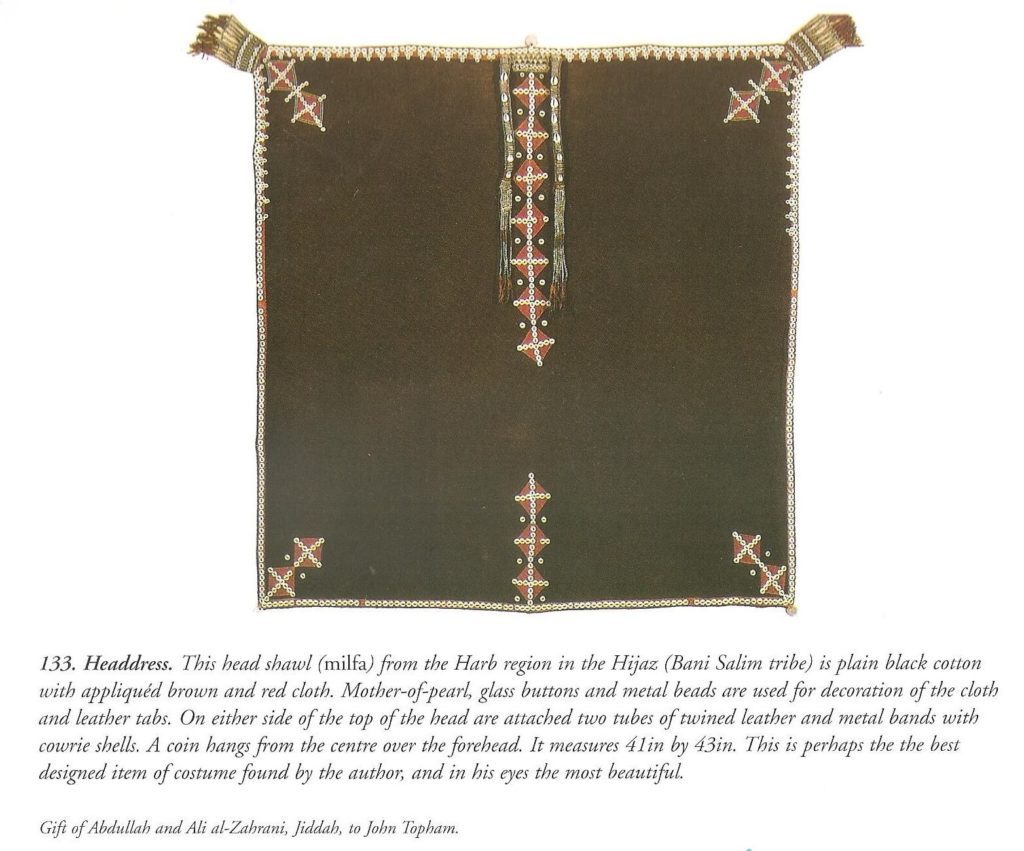
Sample of a head shawl worn by Harb tribe women
Image source Traditional Crafts of Saudi Arabia book by John Topham
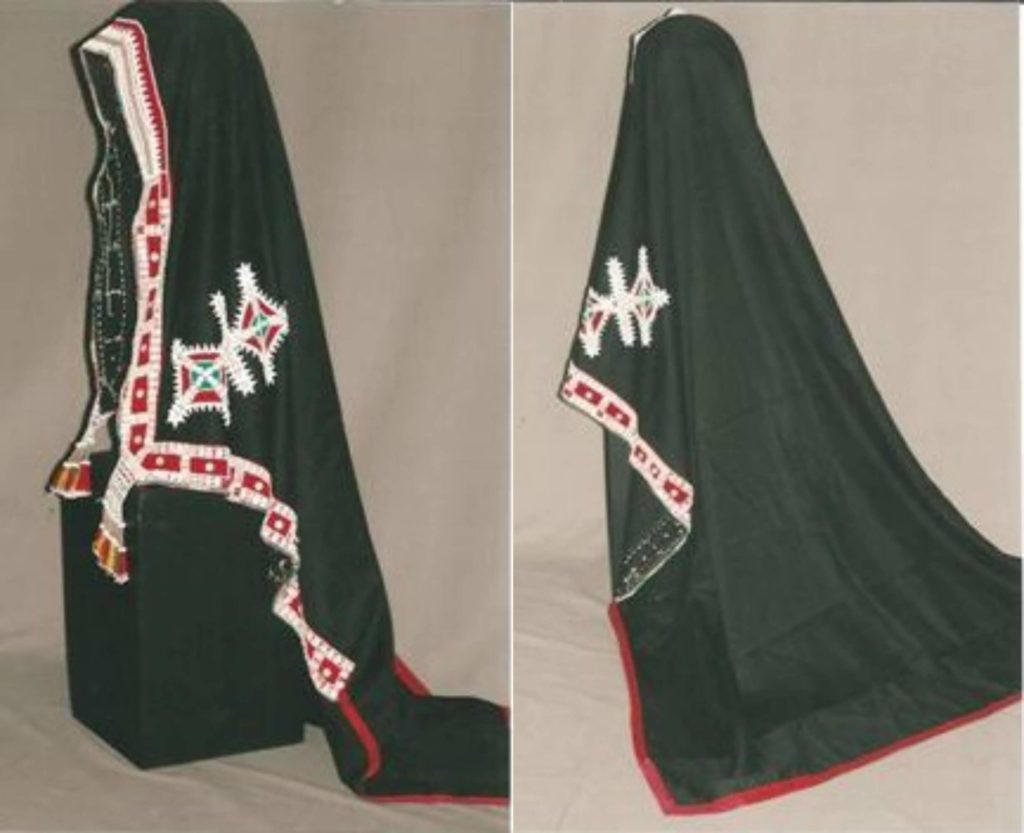
Variations of headdress decoration
I like these rhomb ornaments a lot:
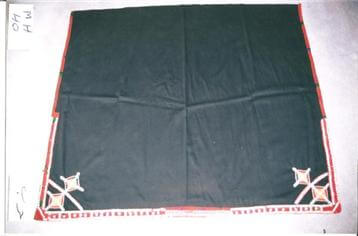
Simple yet impressive decorative rhombs on a Harb tribe headdress
The most spectacular attribute of the Harb attire worn particularly by the Harb tribeswomen was a decorative face mask. Richly embellished with coins, metalwork, tassels, metal thread embroidery and cloth, these masks would leave only slits open for the eyes to see through.
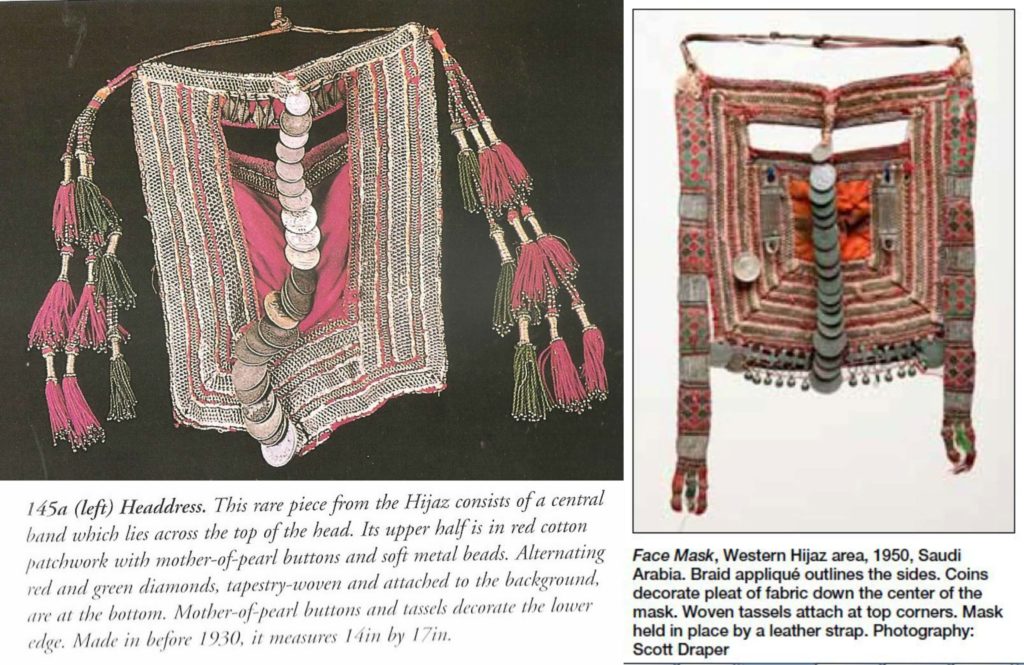
Face masks worn by Harb tribeswomen
Image source 1) Textile Arts Council Magazine, January 2014, Volume XXIX, Number 1, Article Textiles and Costumes of the Arabian Peninsula, 2) Traditional Crafts of Saudi Arabia book by John Topham
The next Harb tribe mask was sold in one of the online auctions. Look at how much work was put into embroidering the whole mask with silver thread. It’s almost identical to the one from the above photo, with same type of tassels and square pattern of the silver thread decoration.
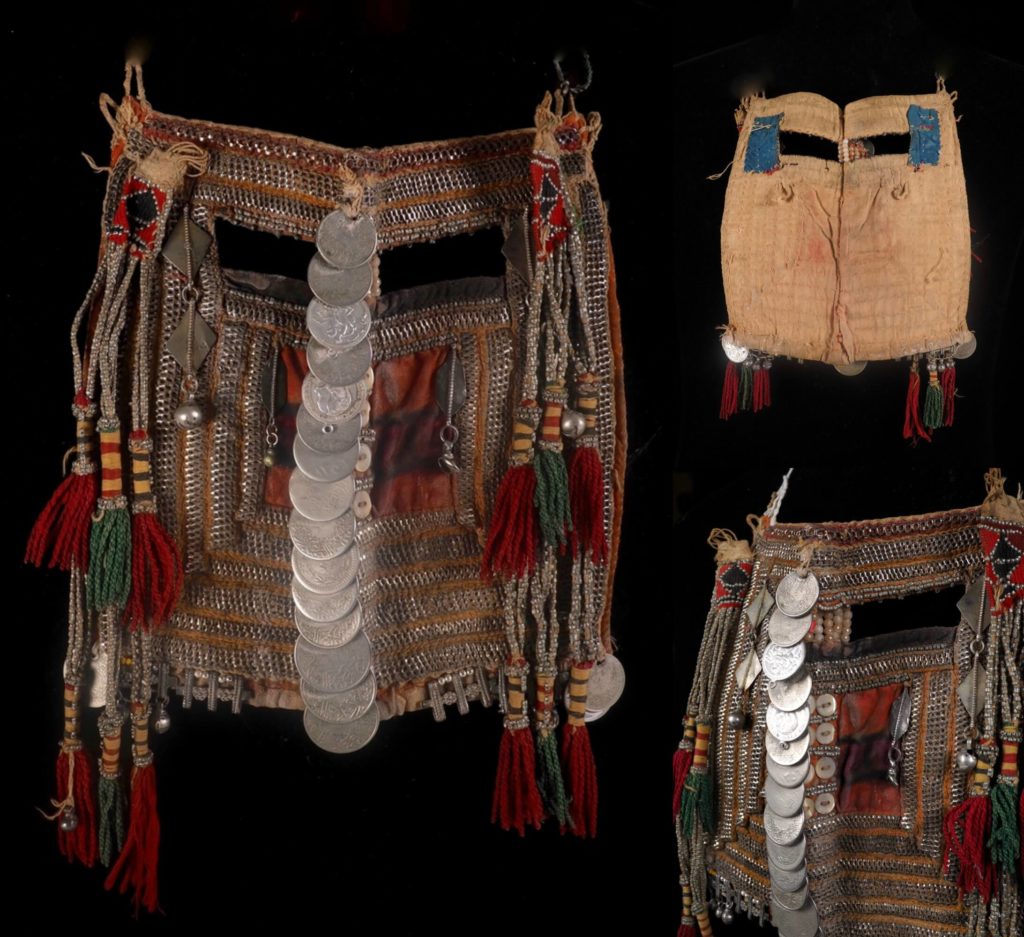
Harb tribe mask with silver coins and tassels.
Image source: one of the online auctions
The next old Saudi Harb face veil must have been made in the Hijaz area. The cotton fabric is richly embroidered with silver thread, and was dyed with vegetable or mud paint. There are two lines of silver beads on each edge of the veil. A few strings of pearls run between the eye holes down to where the chin would end, continued by a coins line. The coins date from 1760 to 1948, the majority from the early 1900s, a 1760 Maria Theresa thaler and a 1840 East India company rupee with a young Queen Victoria can be distinguished.
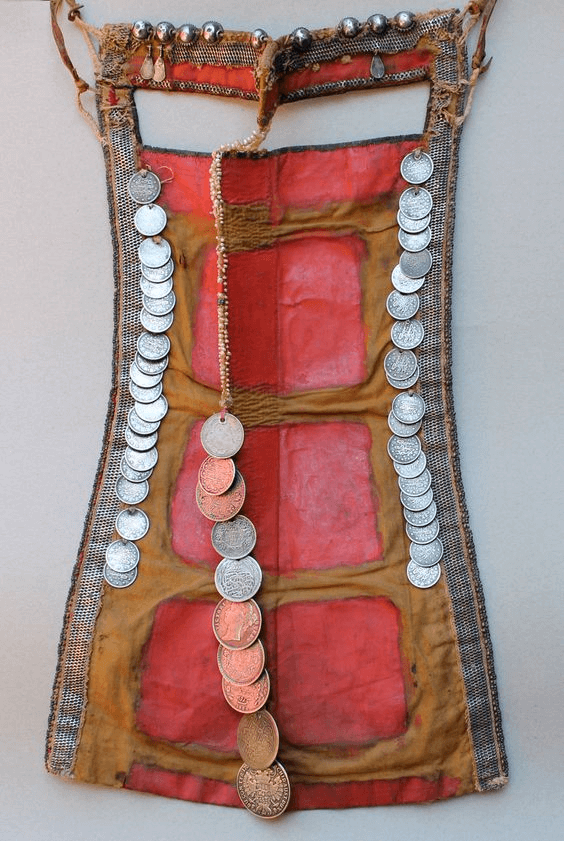
Harb tribe mask with pearls and coins
Face masks look great framed.
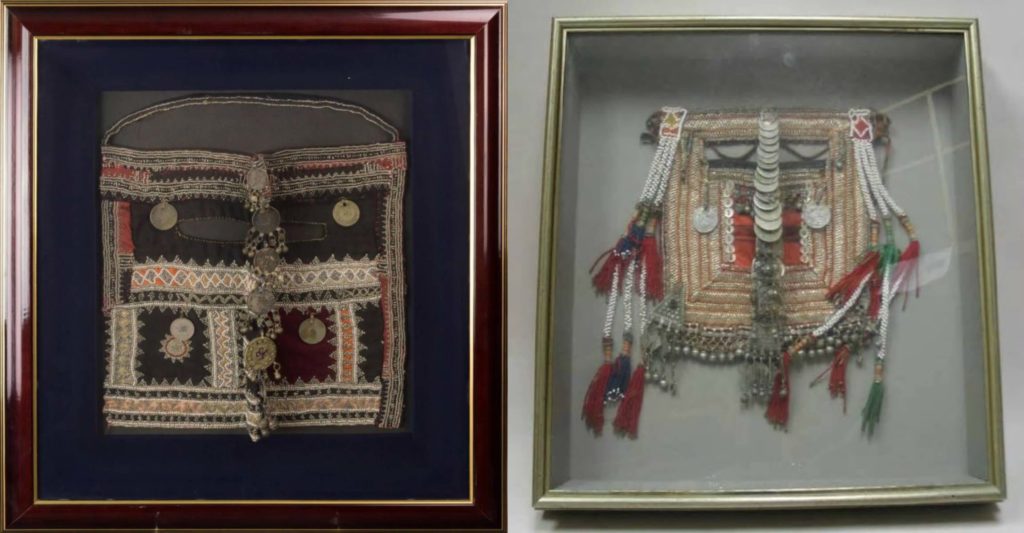
Two framed Harb tribe face masks
Image source: one of the online auctions.
These face masks have unique mother-of-pearl decorative lines running around the perimeter.
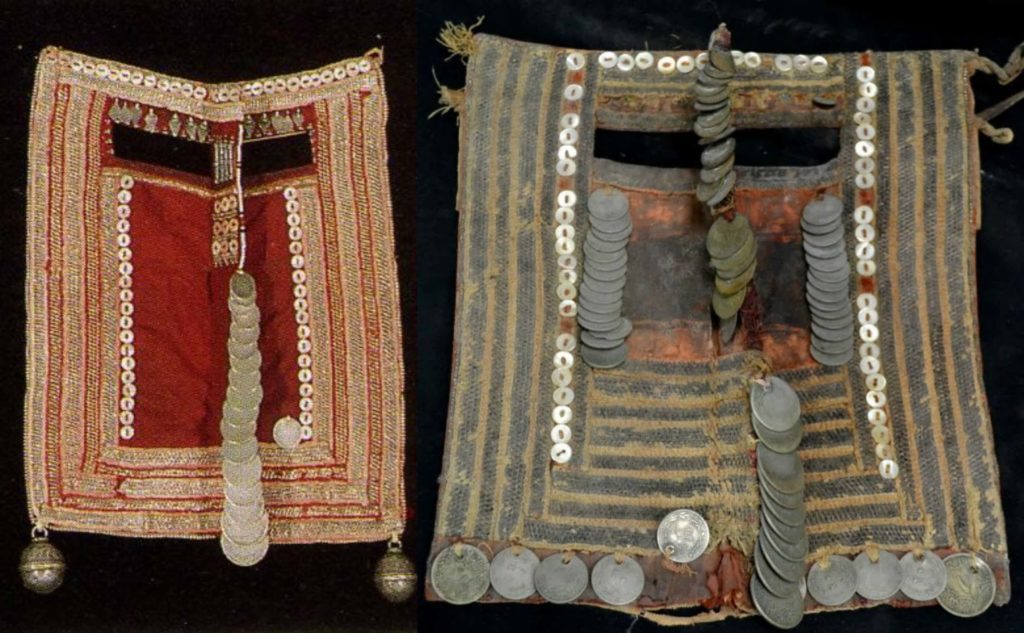
Harb tribal masks with mother-of-pearl decorative lines
Image source: one of the online auctions.
One more way to add a special personal touch to a face mask is these silver triangle hangings.
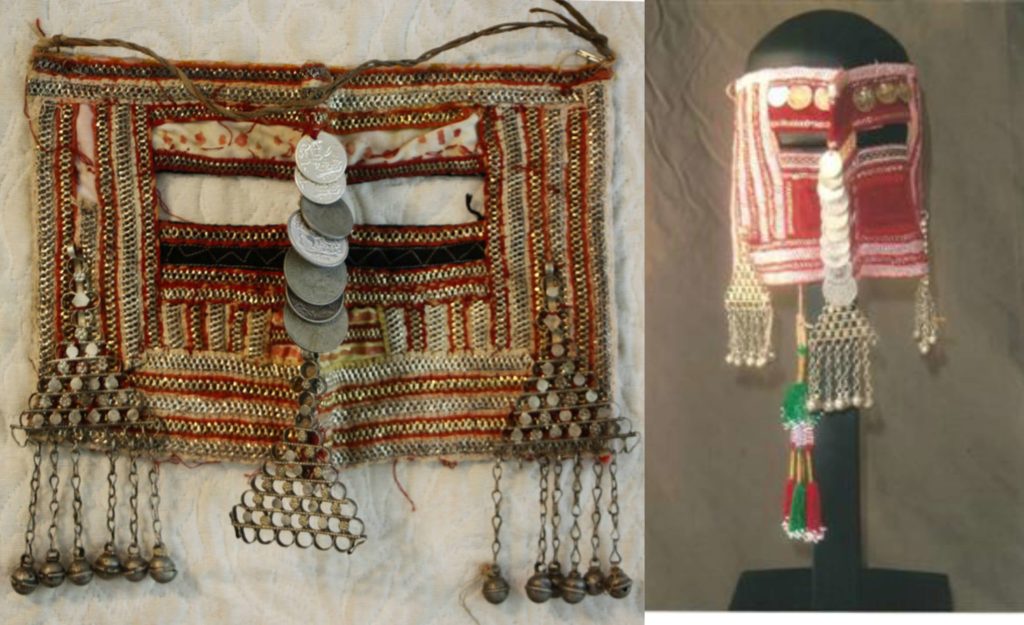
Tribal face mask with silver triangle decorative pieces
Image source and one of the online auctions
I can’t get enough of these beautiful garments (you can tell!).
This bedouin lady is showing off her unique face veil:
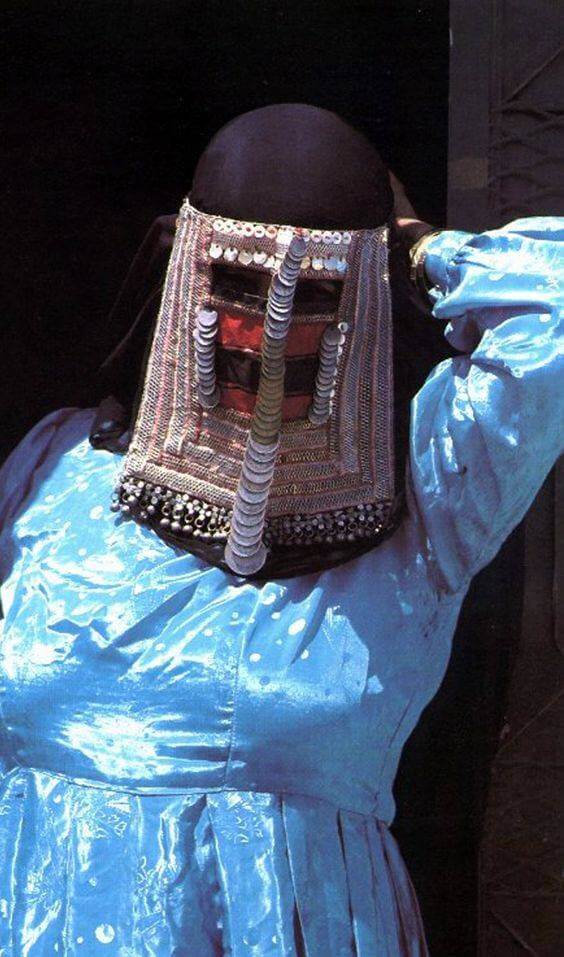
Harb tribe mask worn to show off.
Image source The Bedouins of Arabia book by Thierry Mauger
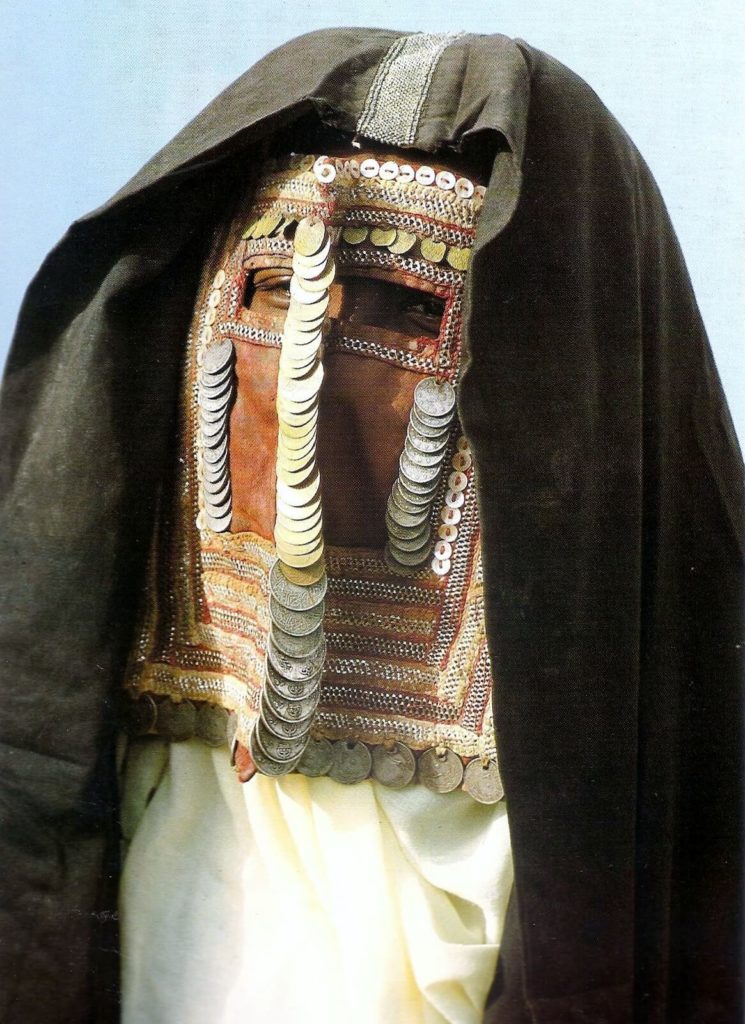
Harb tribeswoman proudly wearing her face mask rich in coins and silver thread embroidery
Image source The Bedouins of Arabia book by Thierry Mauger
A bedouin woman in traditional dress, face mask and head shawl with metal thread embroidery
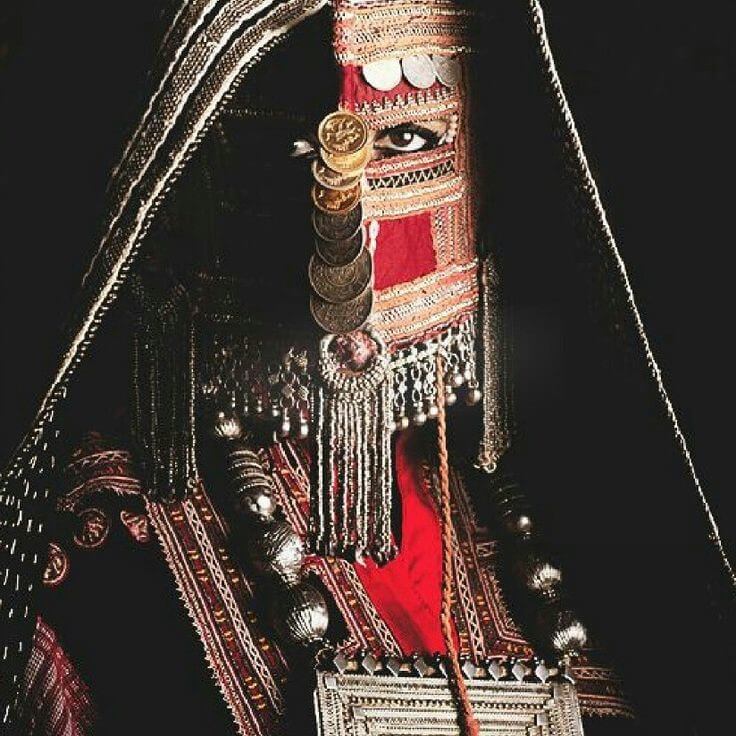
Are there some gold coins on the top of the coin string?
Image source unknown
Harb tribe woman doing housework in the tent.
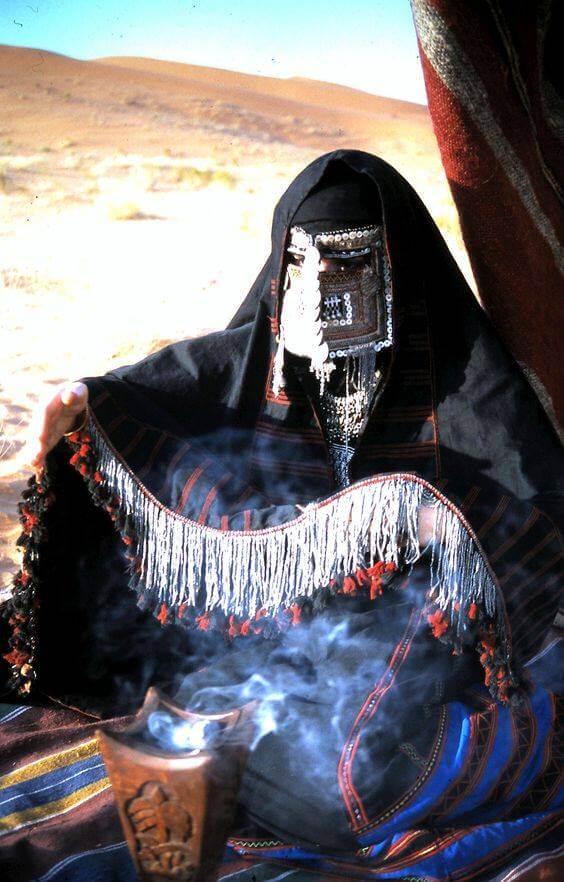
Harb tribeswoman in her traditional outfit
Image source unknown
And if you think these gorgeous face masks are out of fashion, take a look at these two photos that were taken recently:
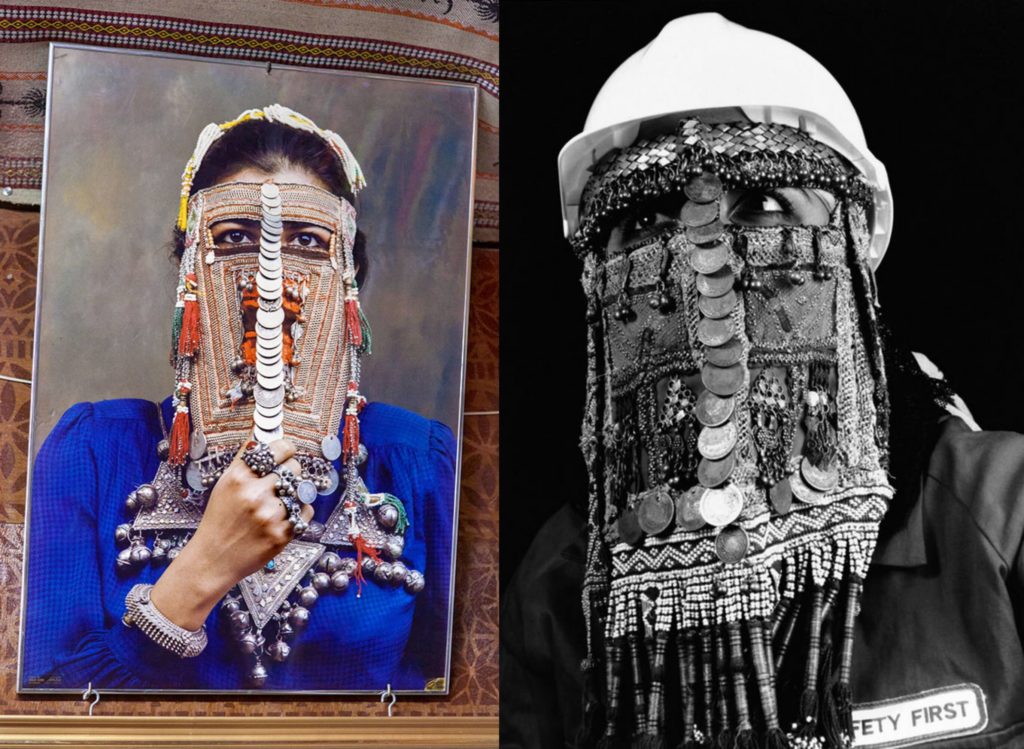
The modern way to wear traditional tribal face masks
Image source: unknown and this website
I wish I knew who took the photo from the left. The photo from the right is taken by Manal Al-Dowayan, a Saudi artist, as part of the “I am” series, and is called “I am a Petroleum Engineer”. The woman in the picture is wearing a safety helmet and an overall, along with the tribal face mask. This shot is ingenious.
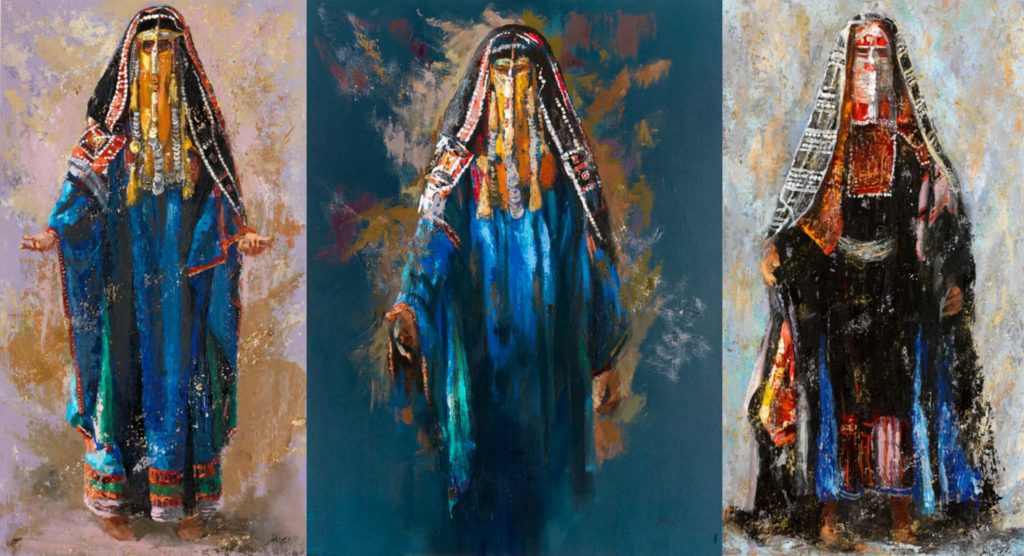
Paintings of tribeswomen wearing Harb tribe traditional dress
Image source: I saved these pictures to my computer without mentioning the source some years ago, and since then I was looking for the artist’s name. If you happen to know who drew these paintings, please don’t be lazy and write me a note, I would love to know. I will appreciate it!
I was lucky enough to find lots of information and a fair amount of photos of the Harb tribe, probably because this tribe was large enough. The important part was to figure out how all the multi-layered garments were worn, as in the pictures you can only see the outer layer.
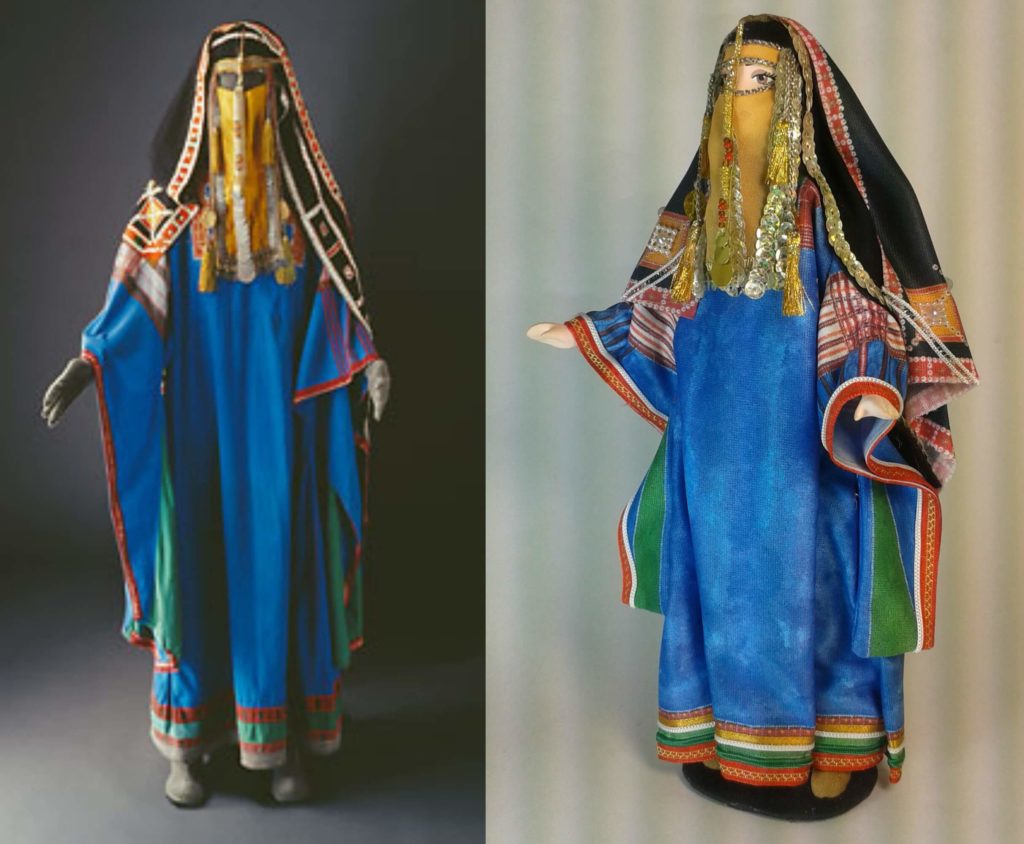
Traditional Harb tribe dress: the inspiration from the left and my handmade copy from the right.
Many elaborate multicolored elements of the thobe and the silver jewelry worn by the Harb tribeswomen inspired a few artists to paint this tribal attire. I’ve collected a few samples of such paintings and will feature them in one of the next posts.
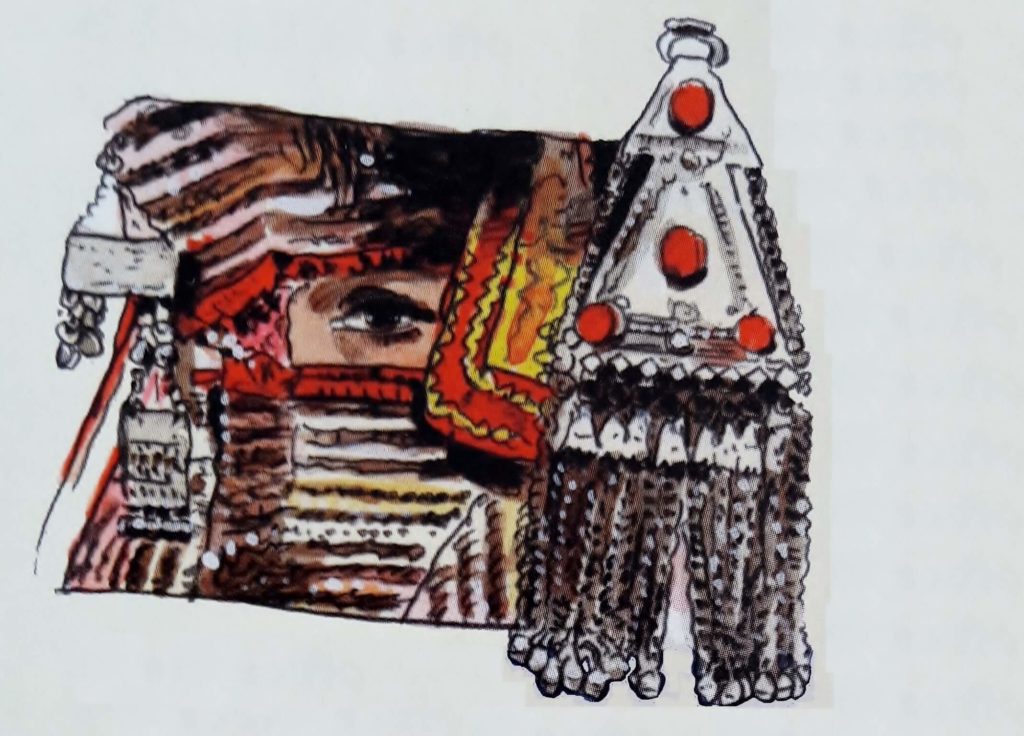
A drawing of Harb woman’s face mask
Image source: A Land Transformed. The Arabian Peninsula, Saudi Arabia and Saudi Aramco book by William Facey
